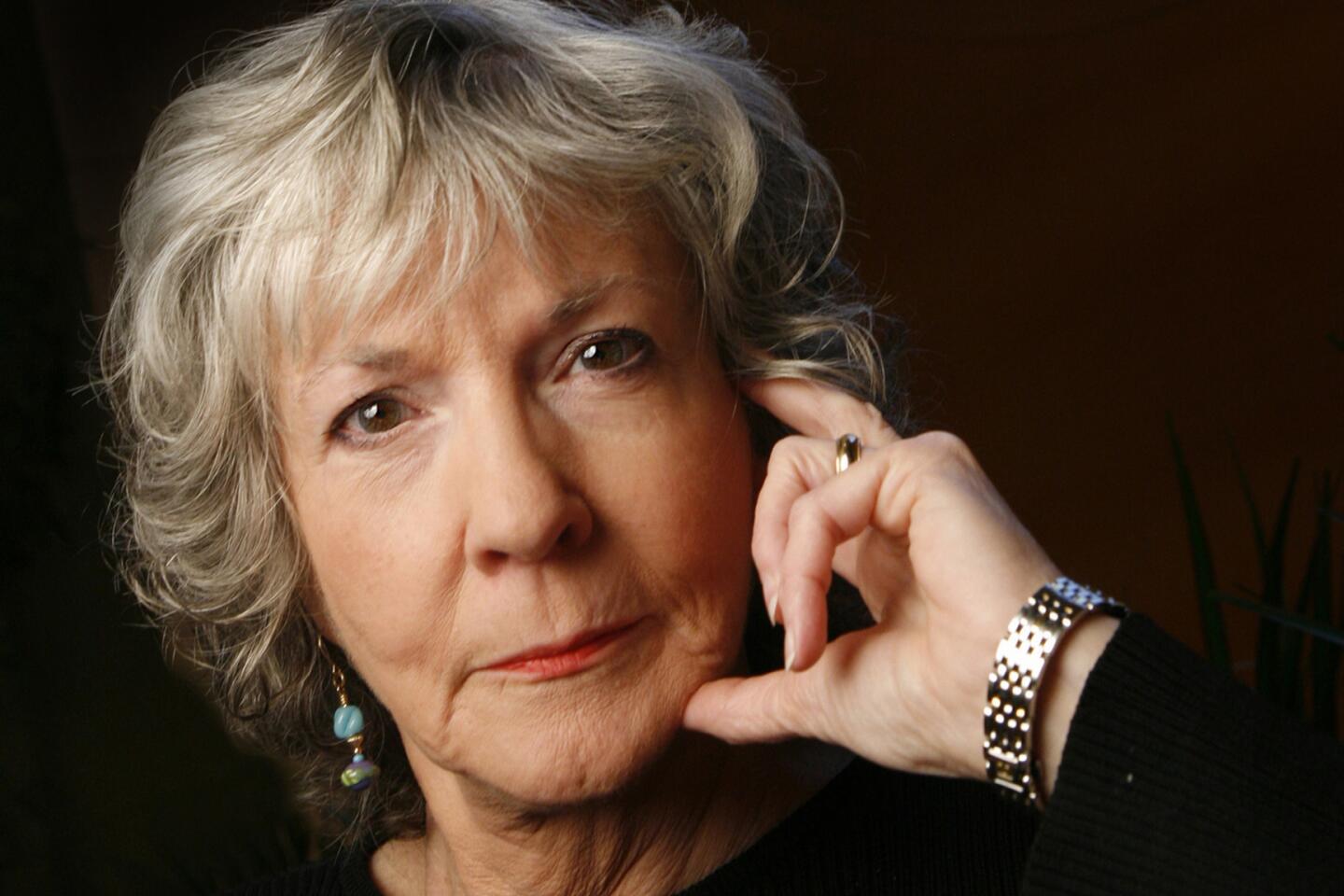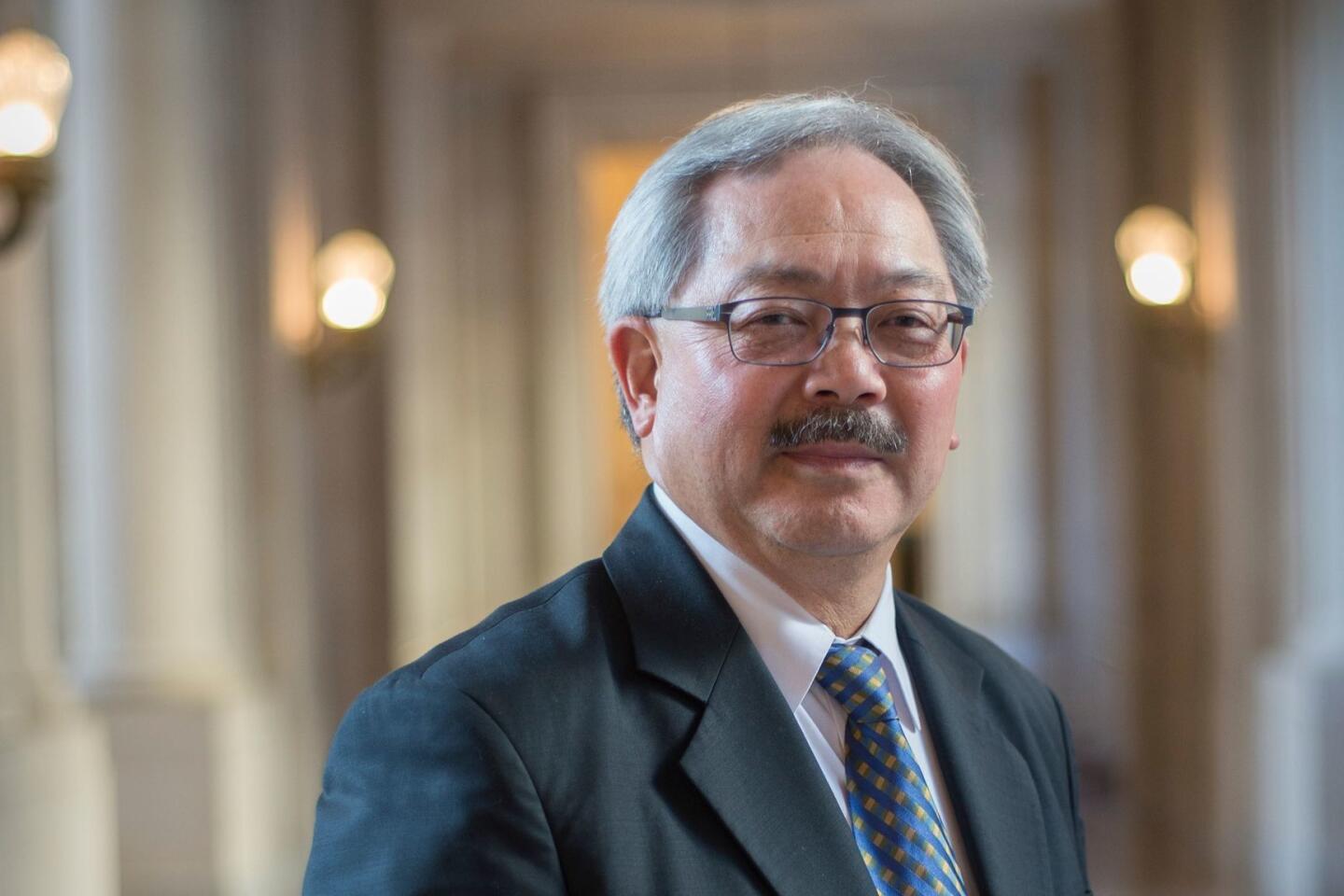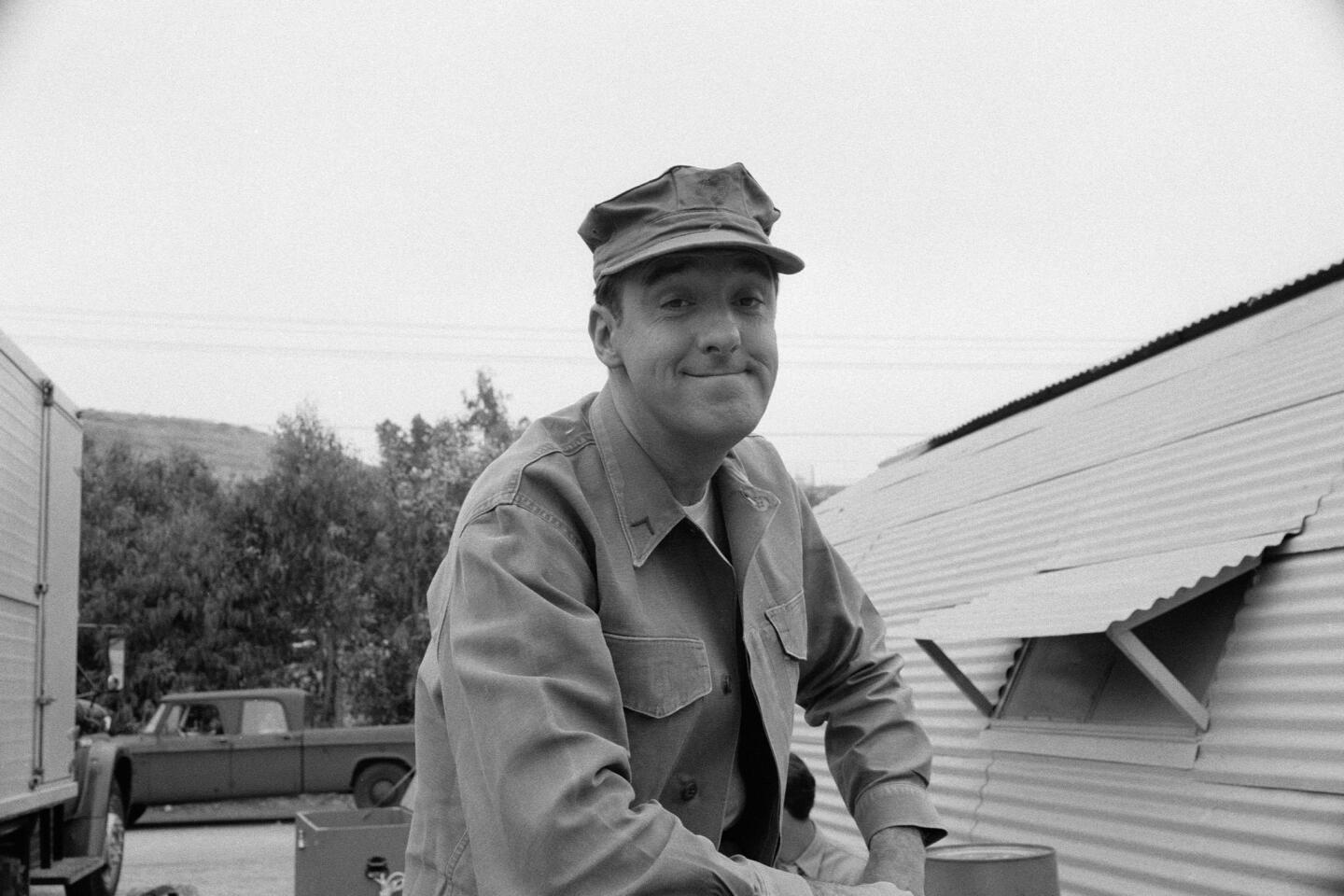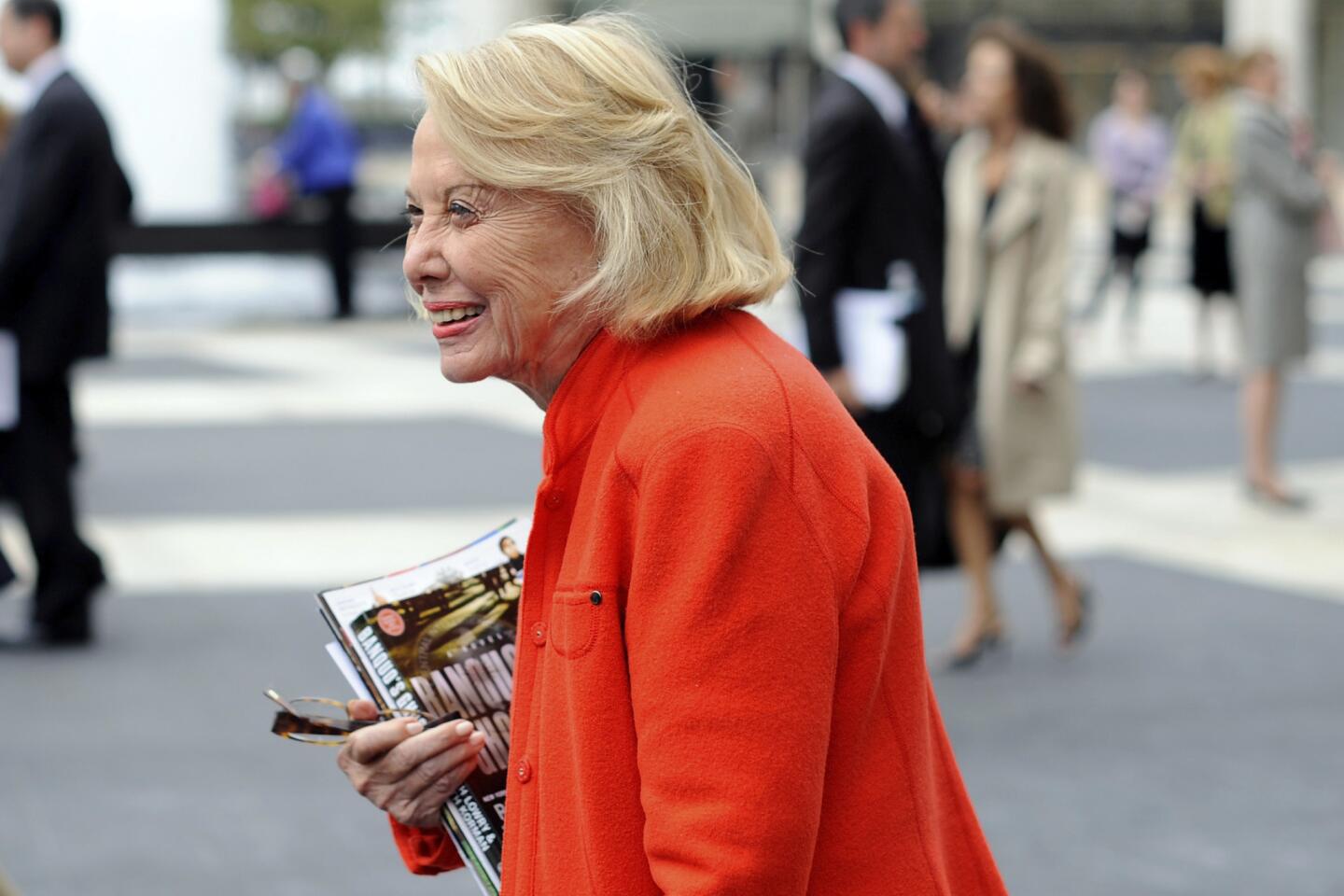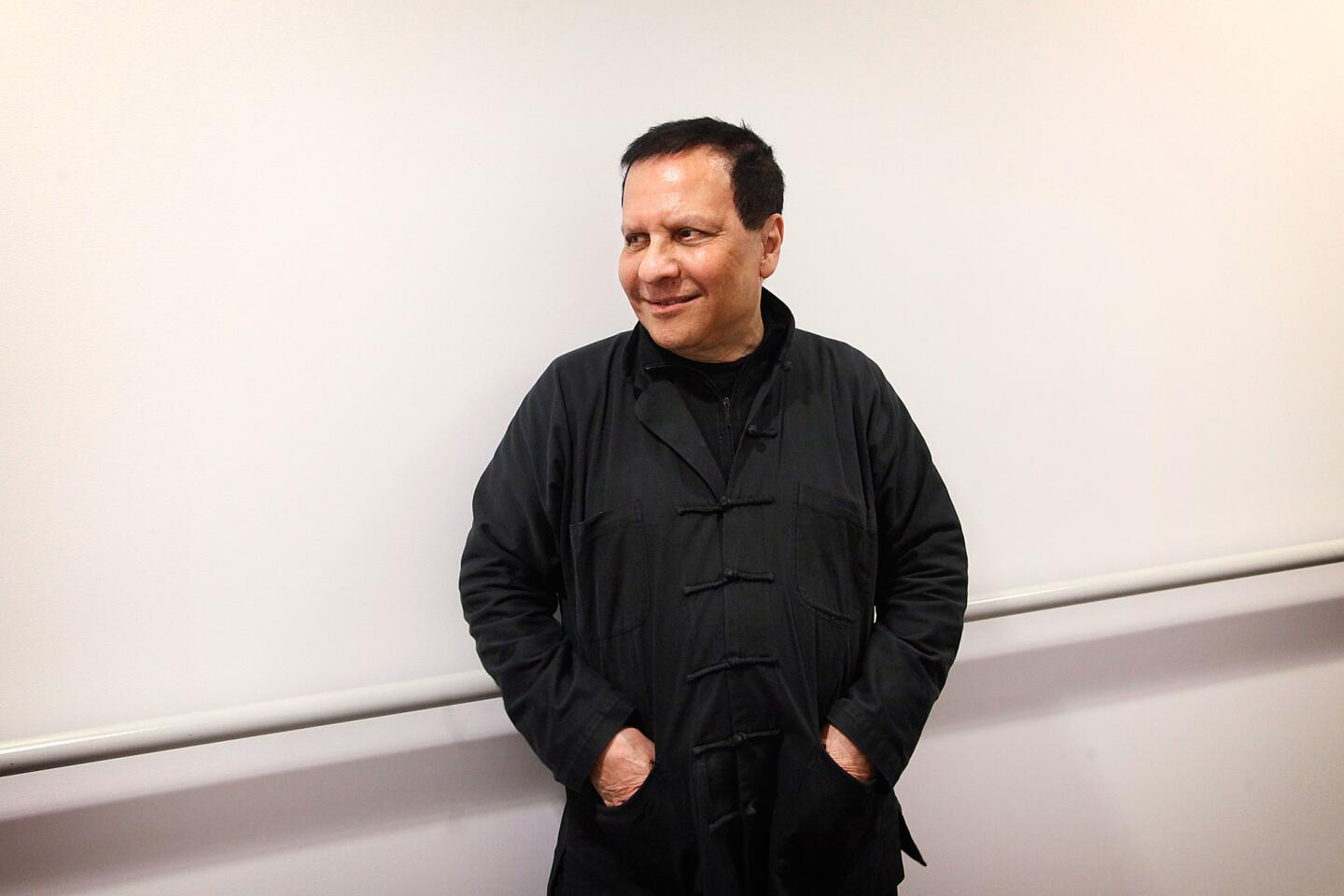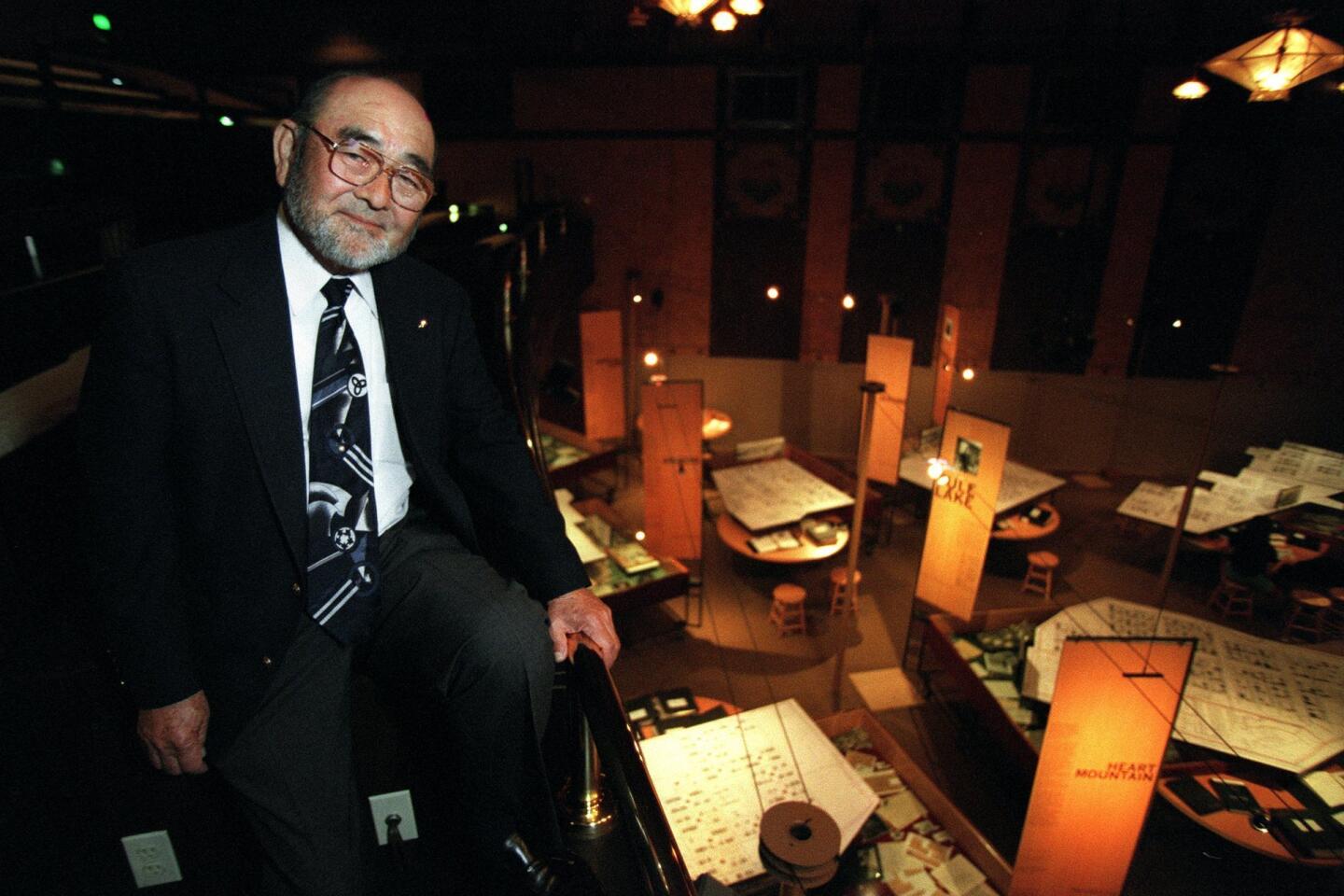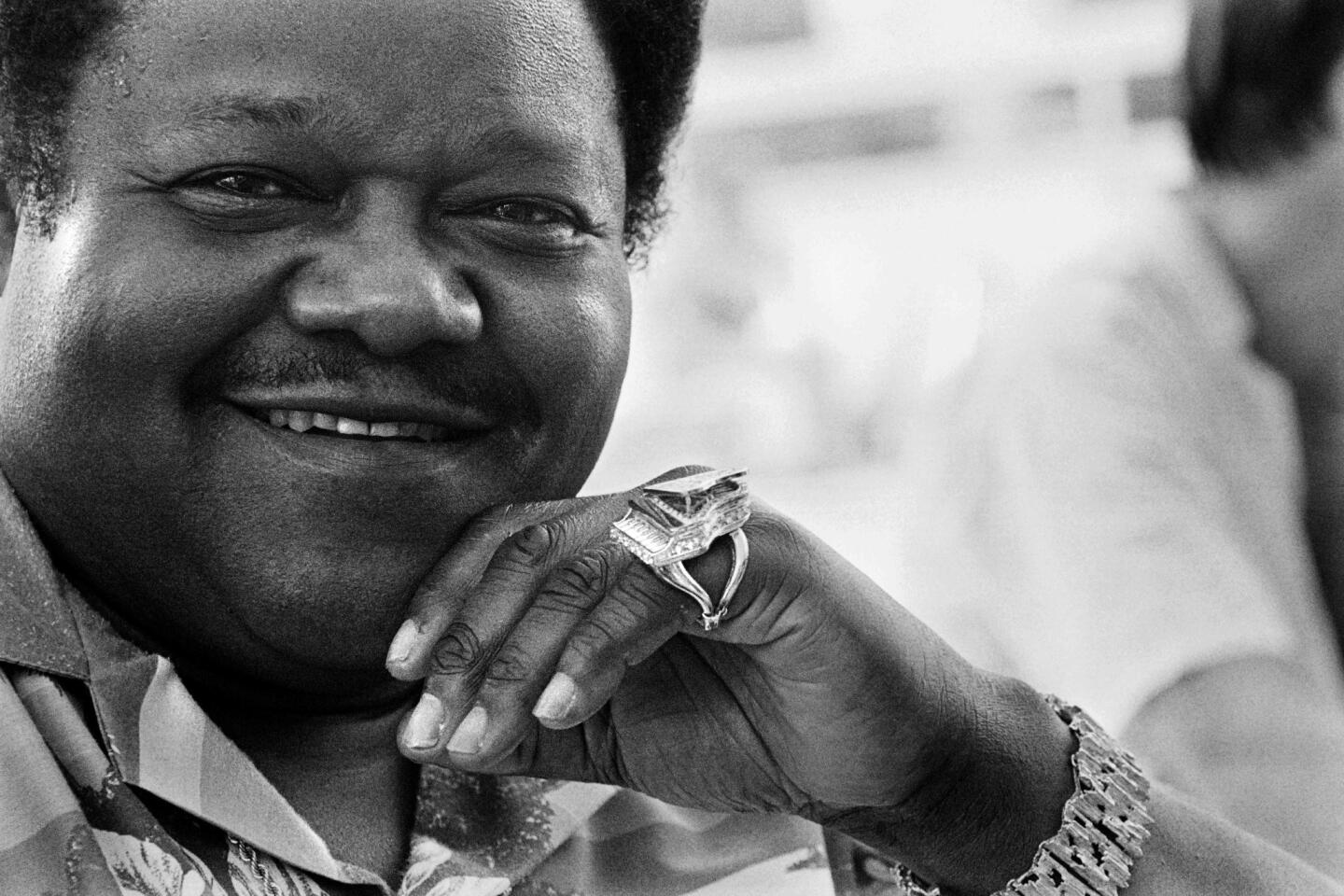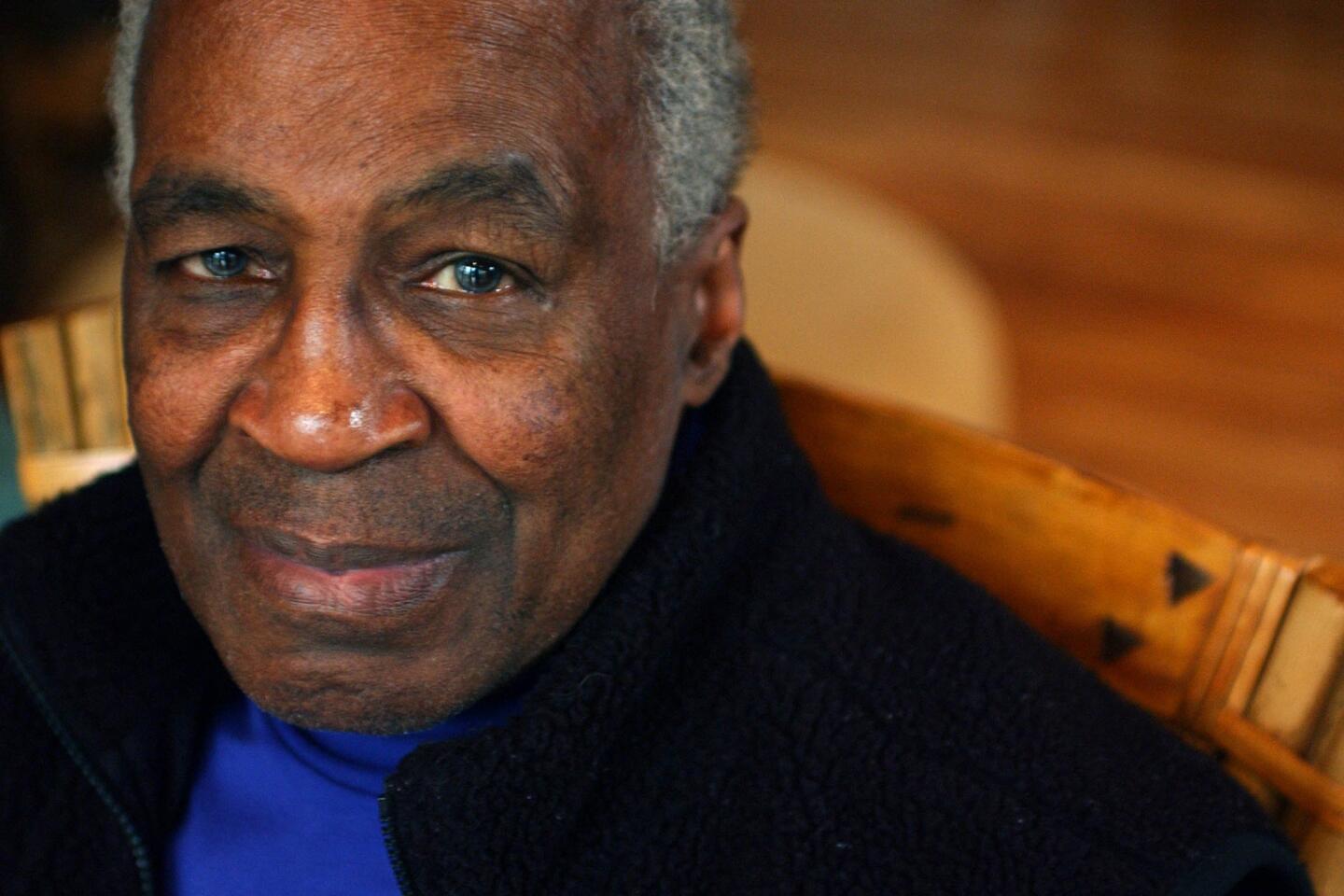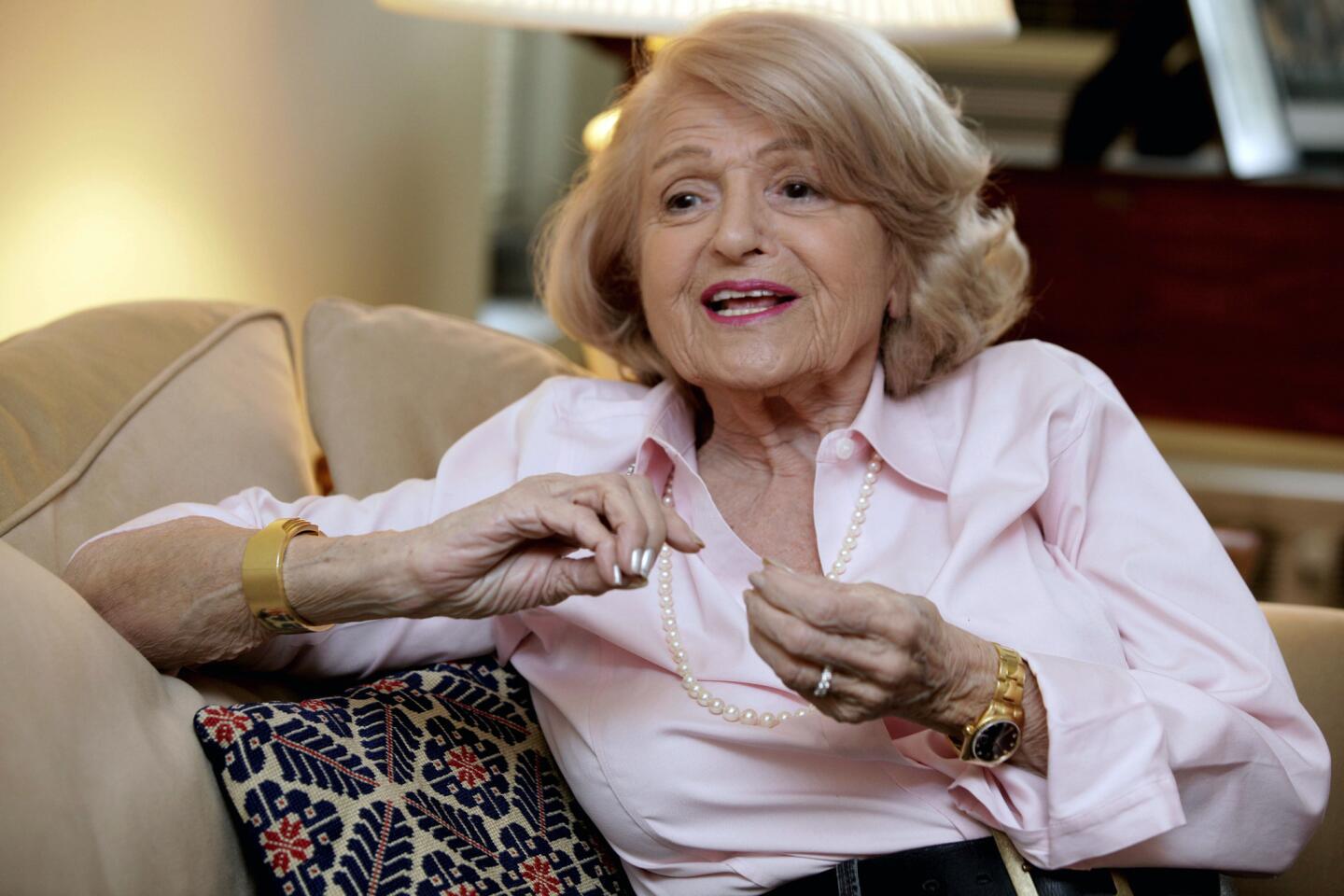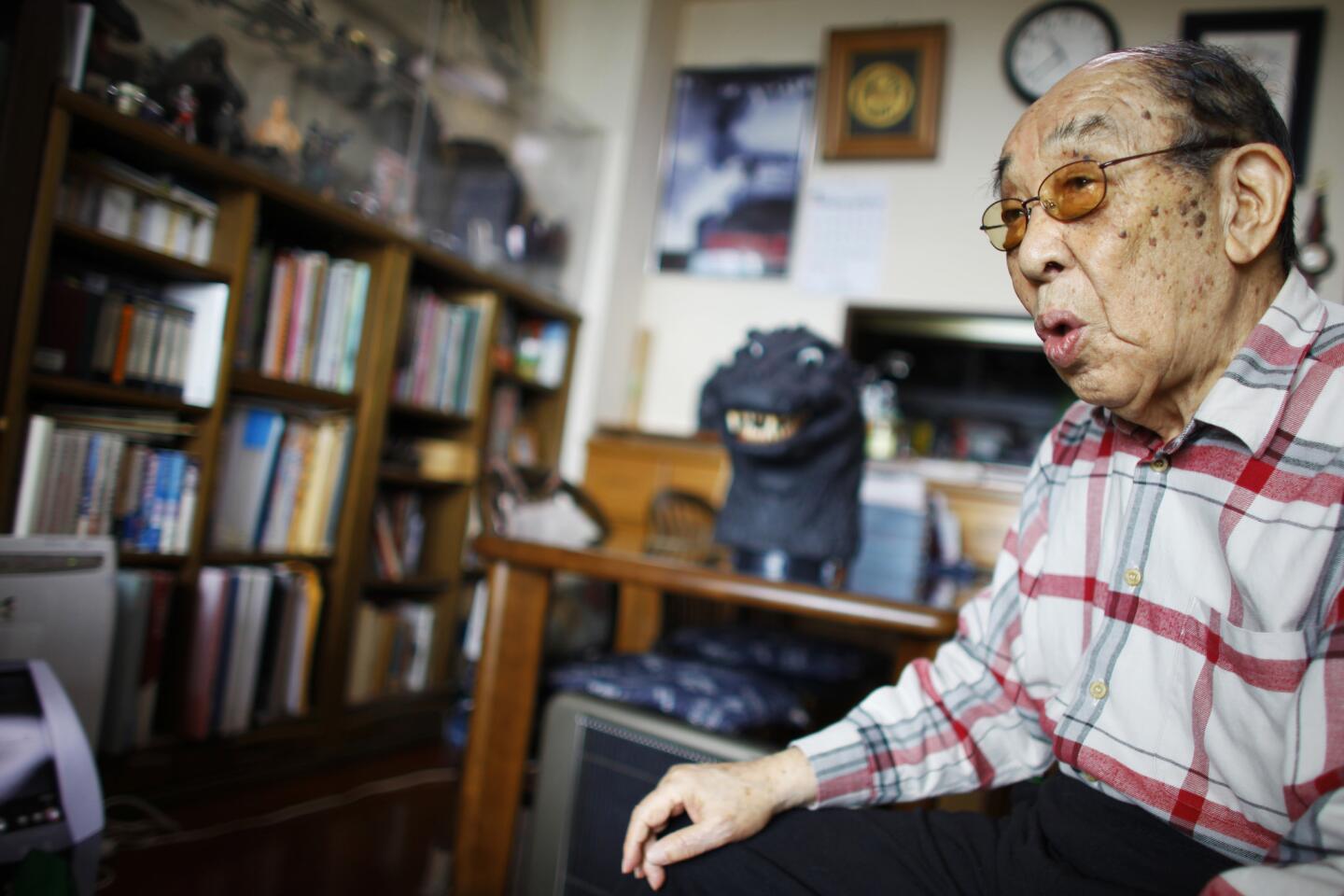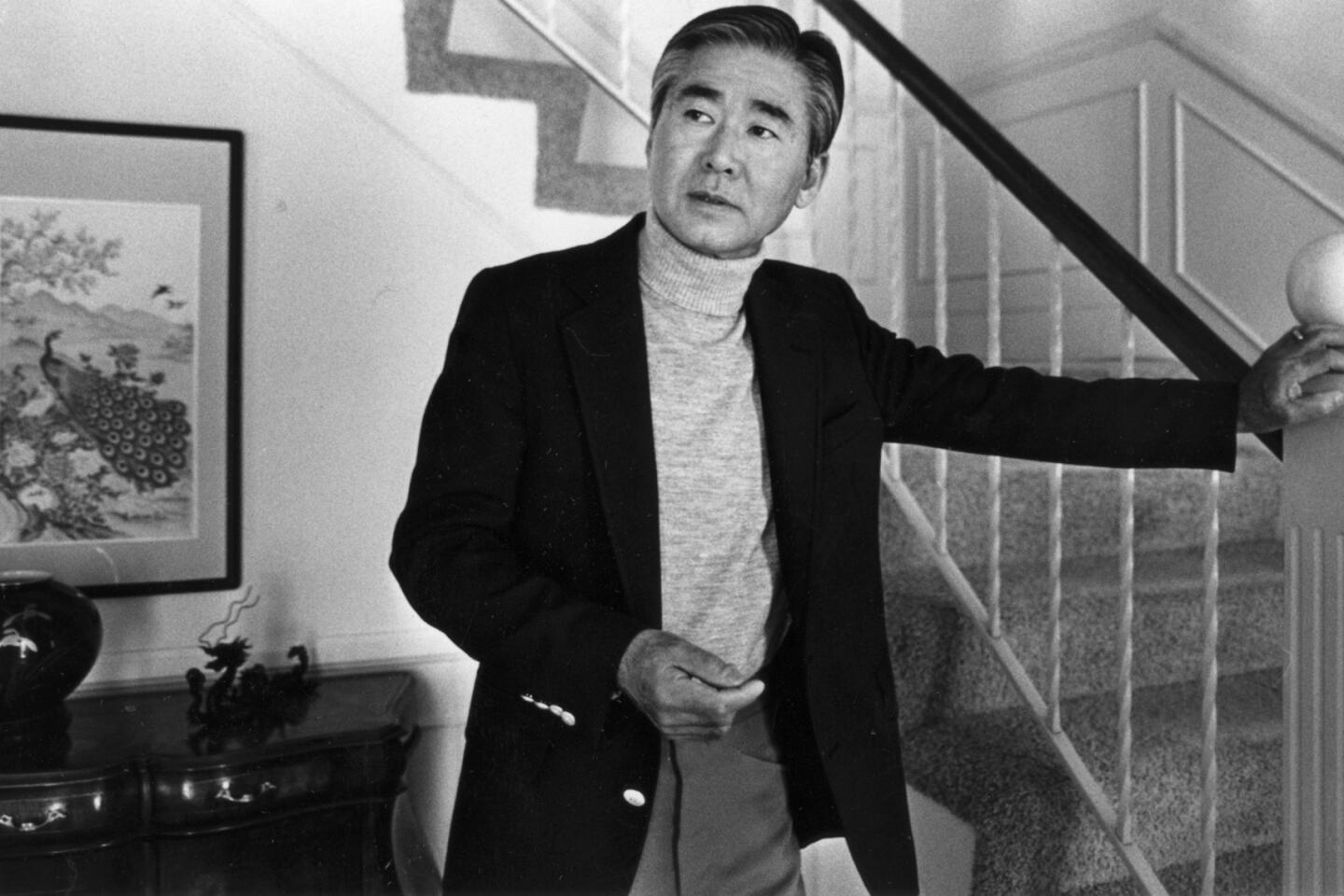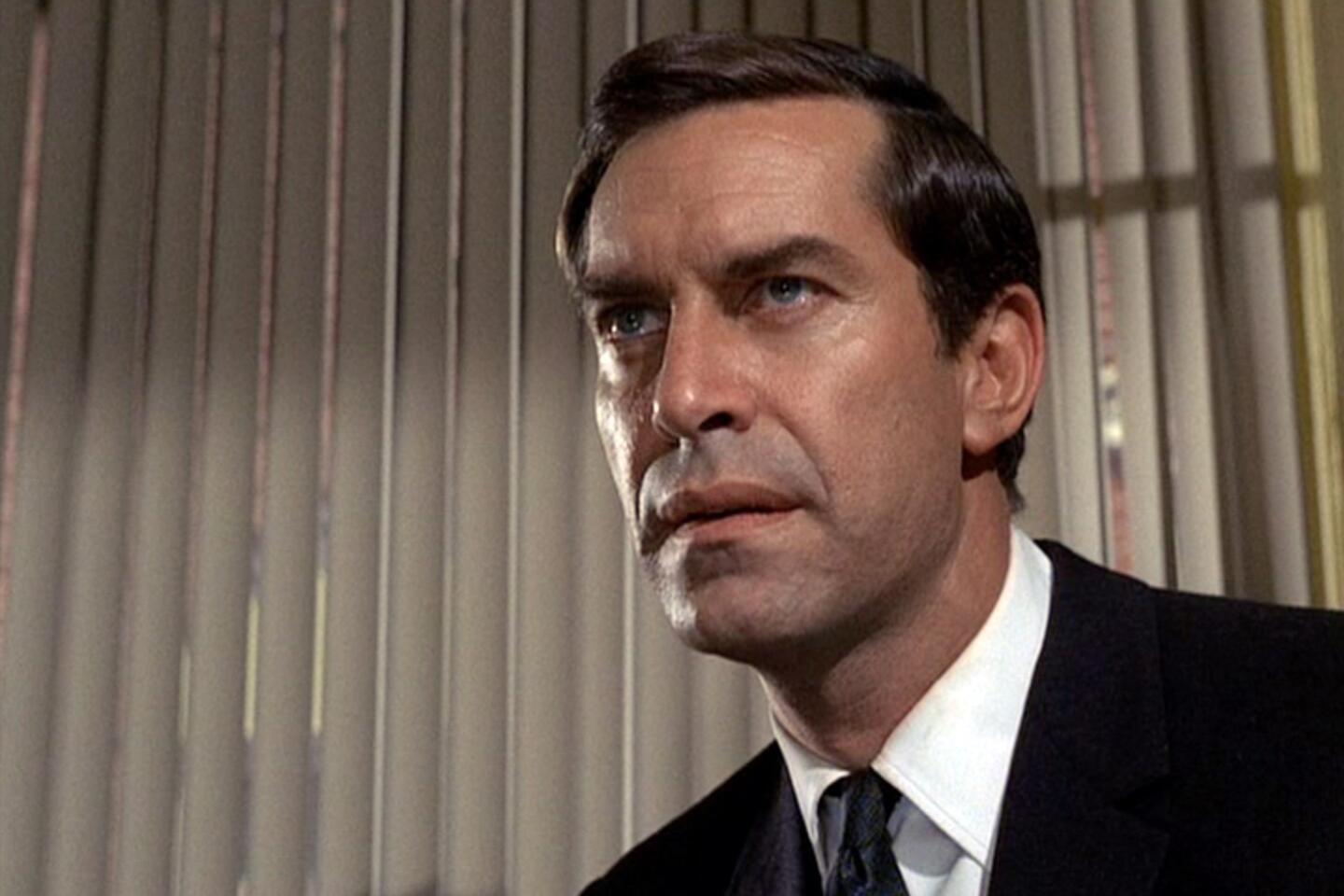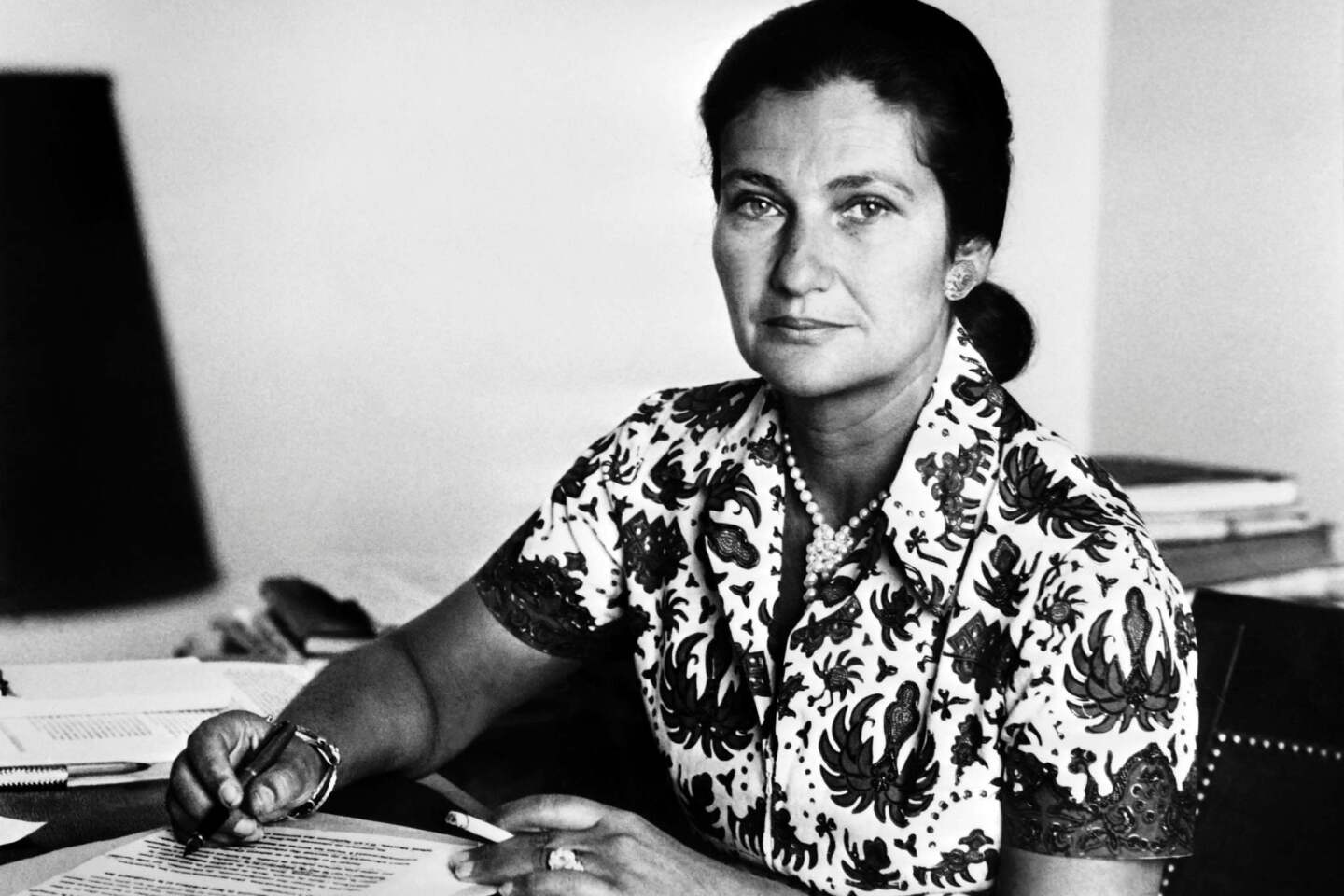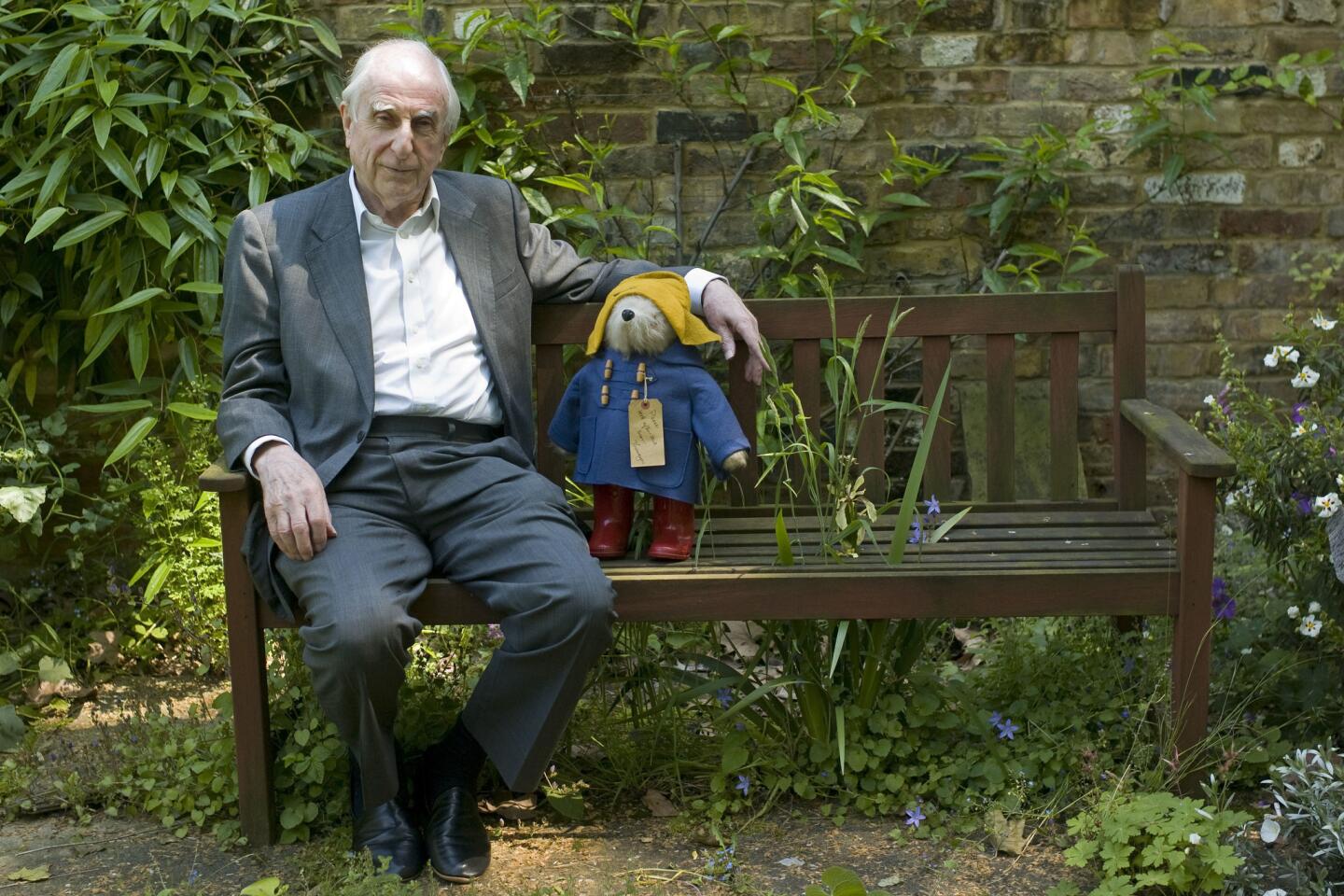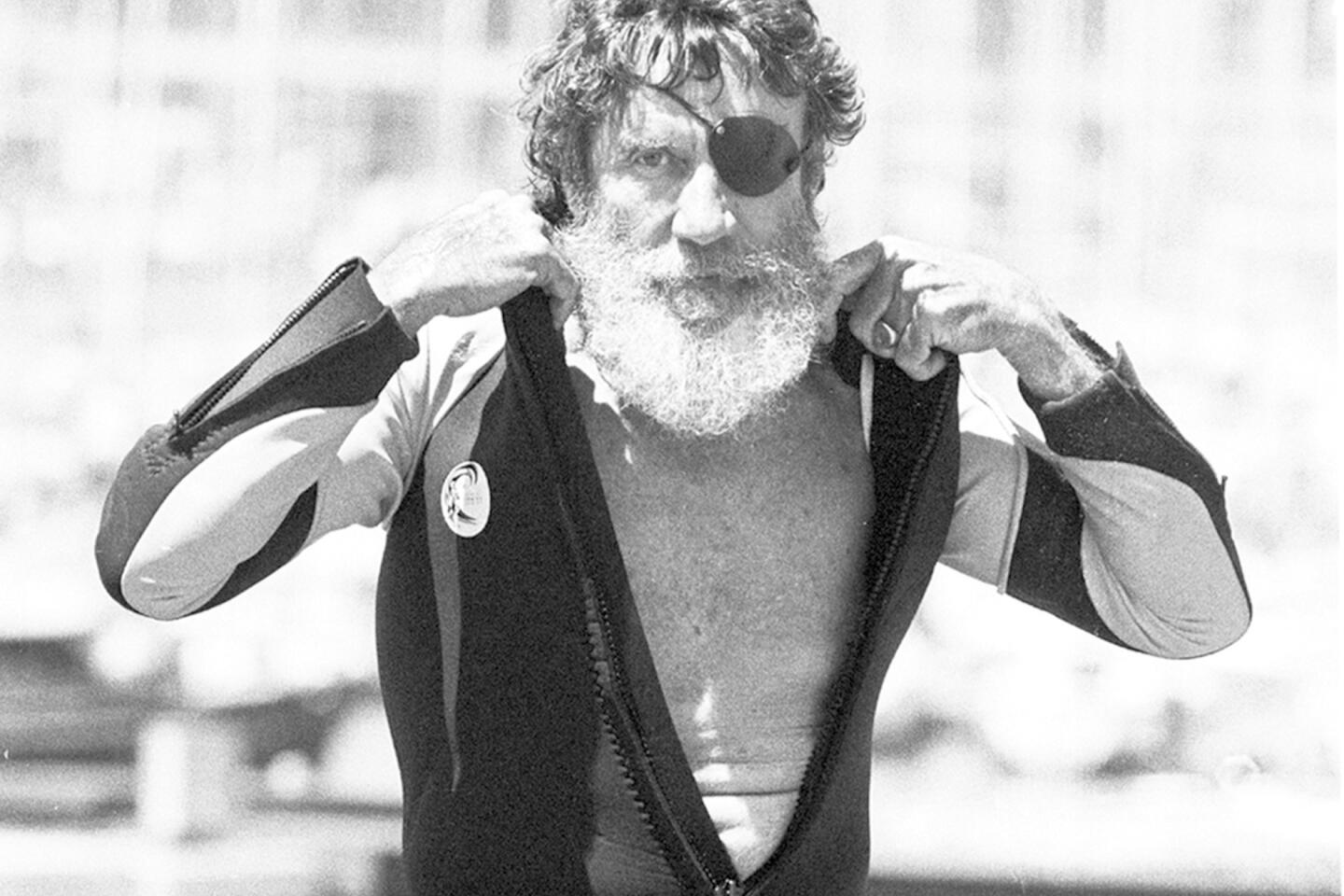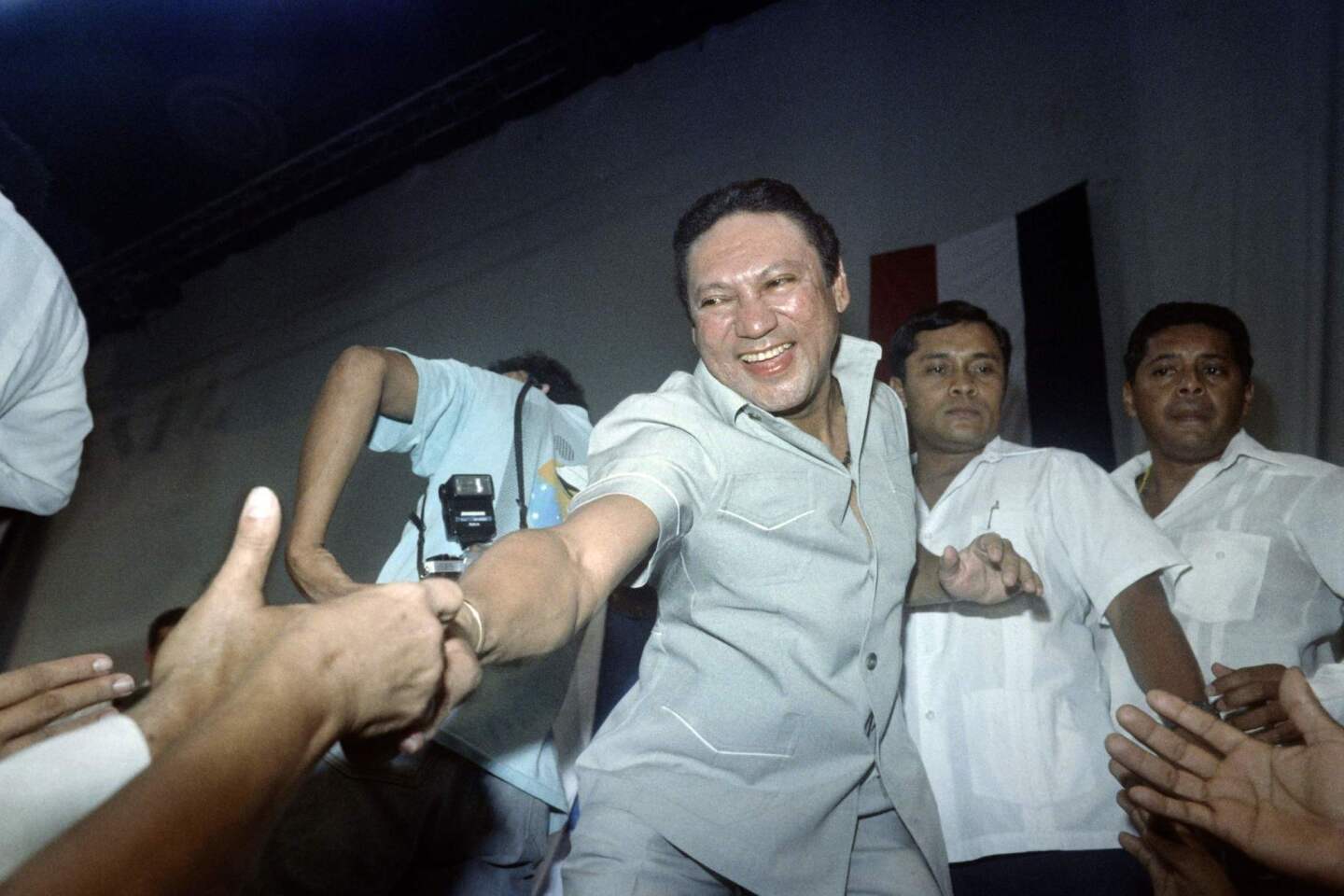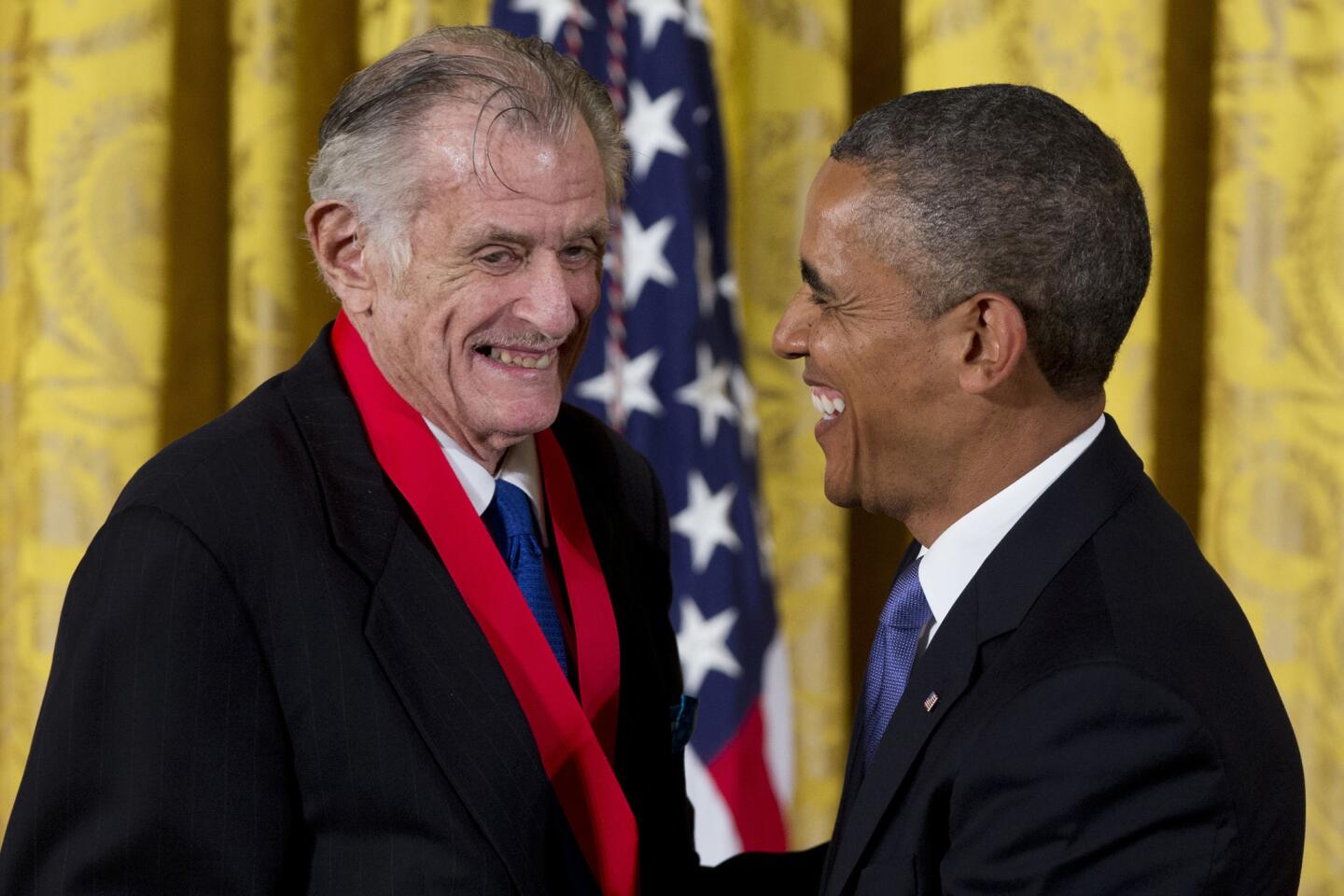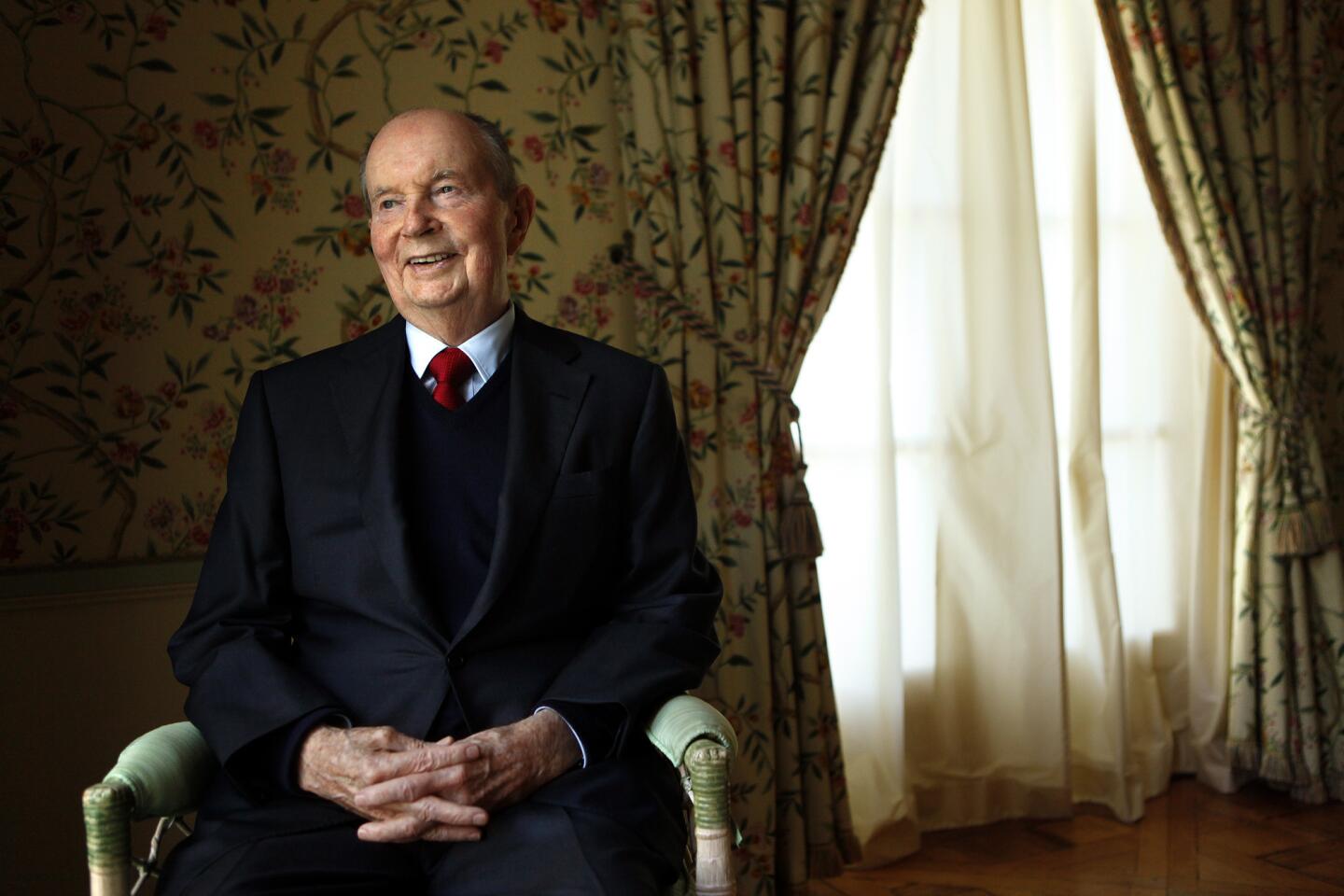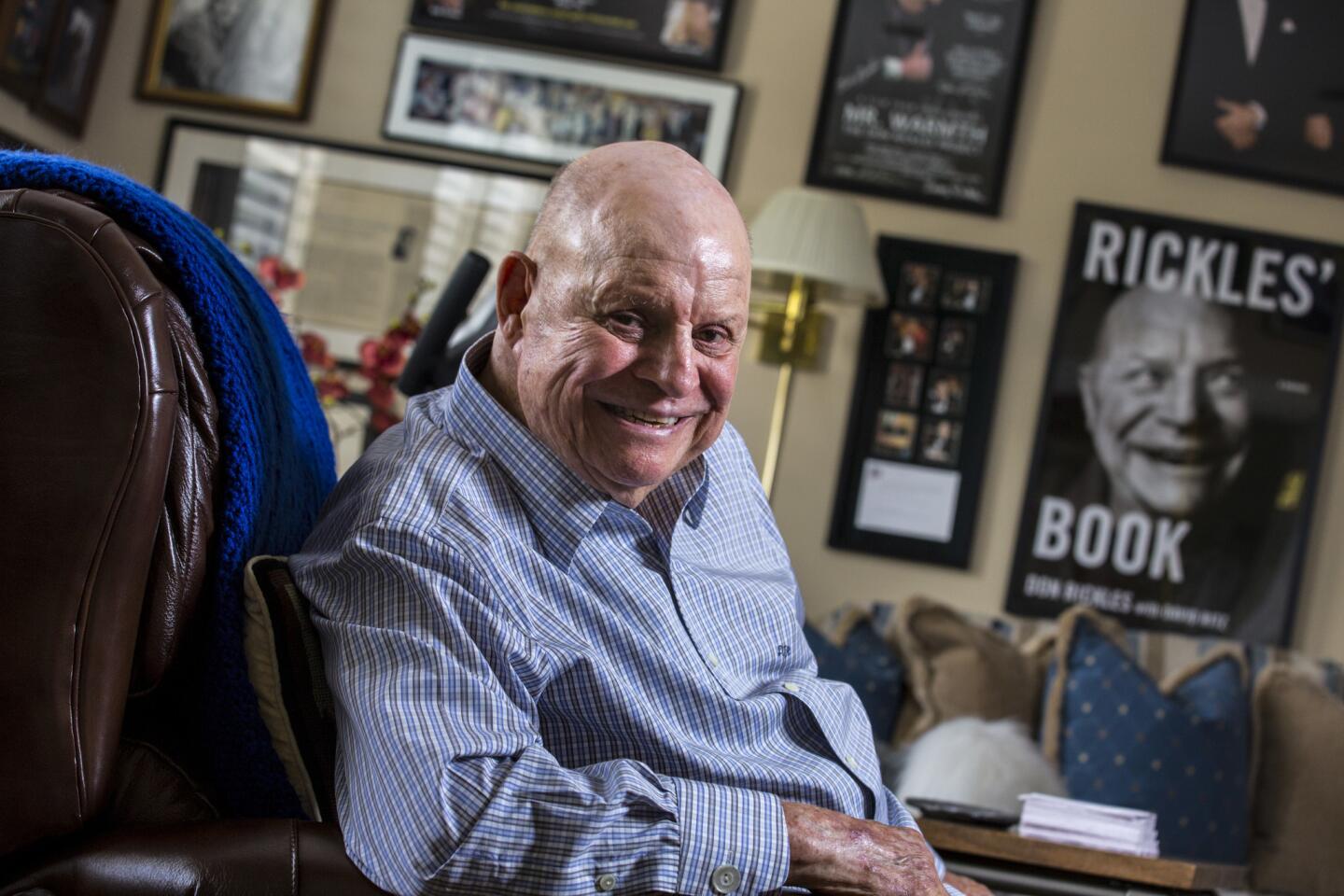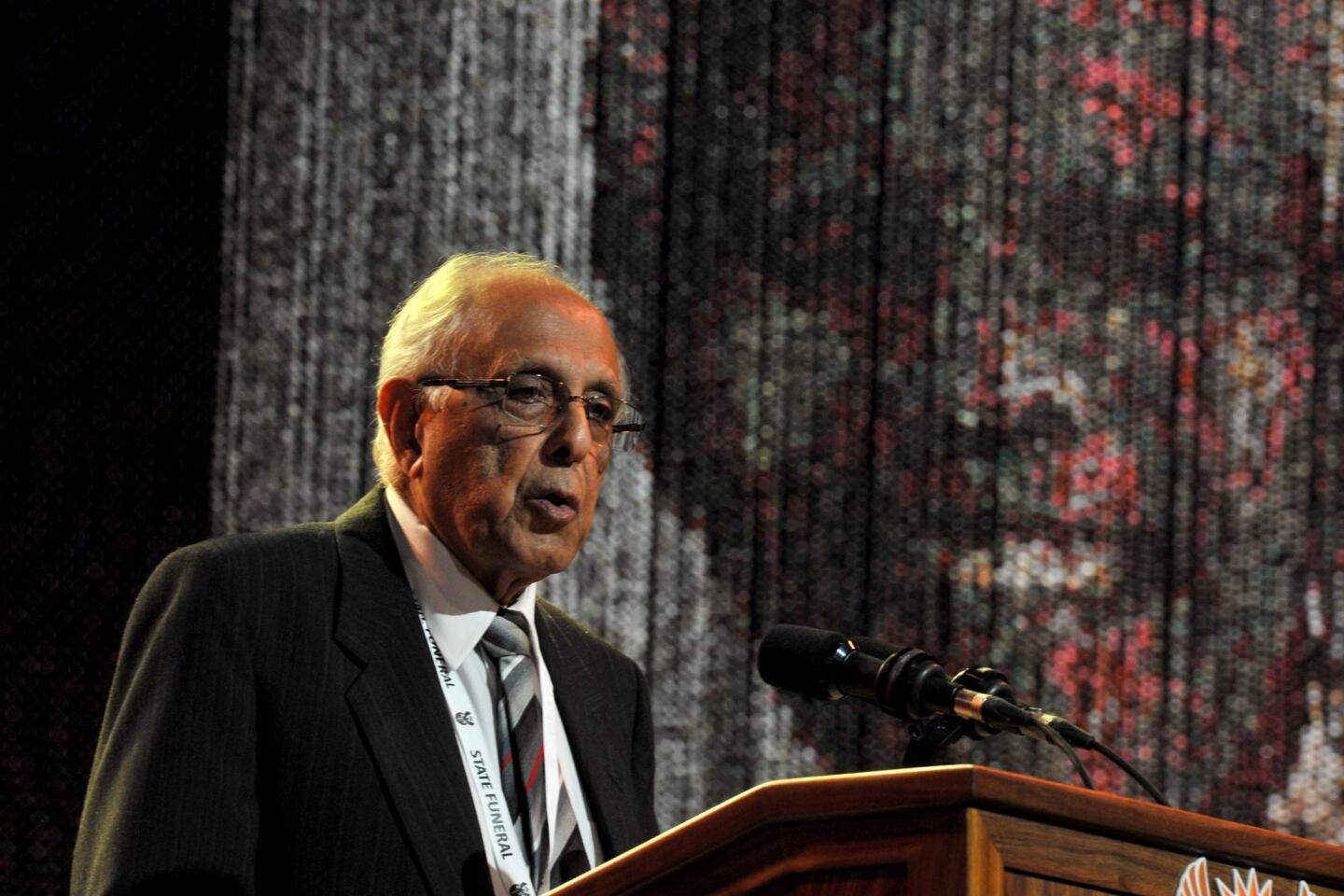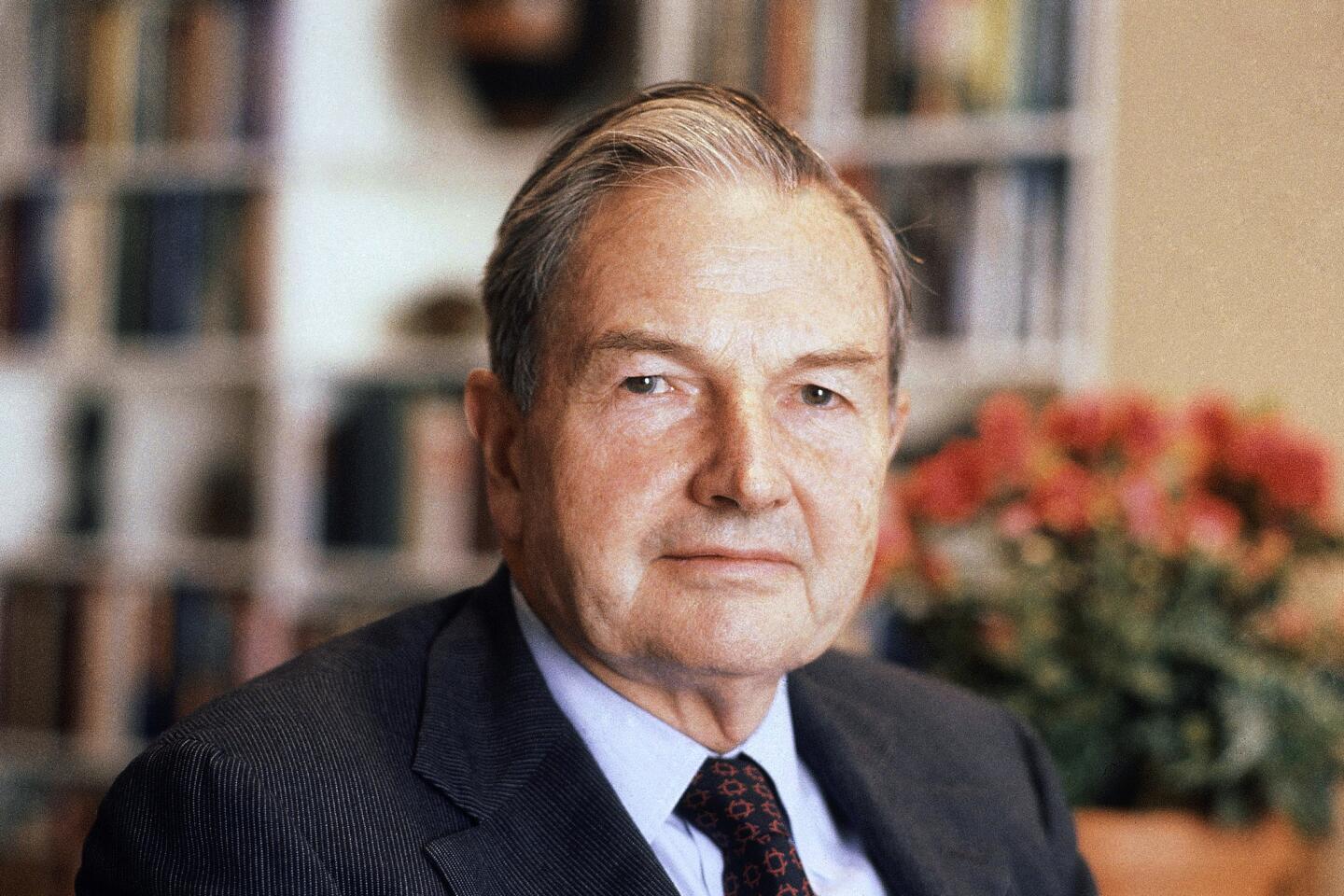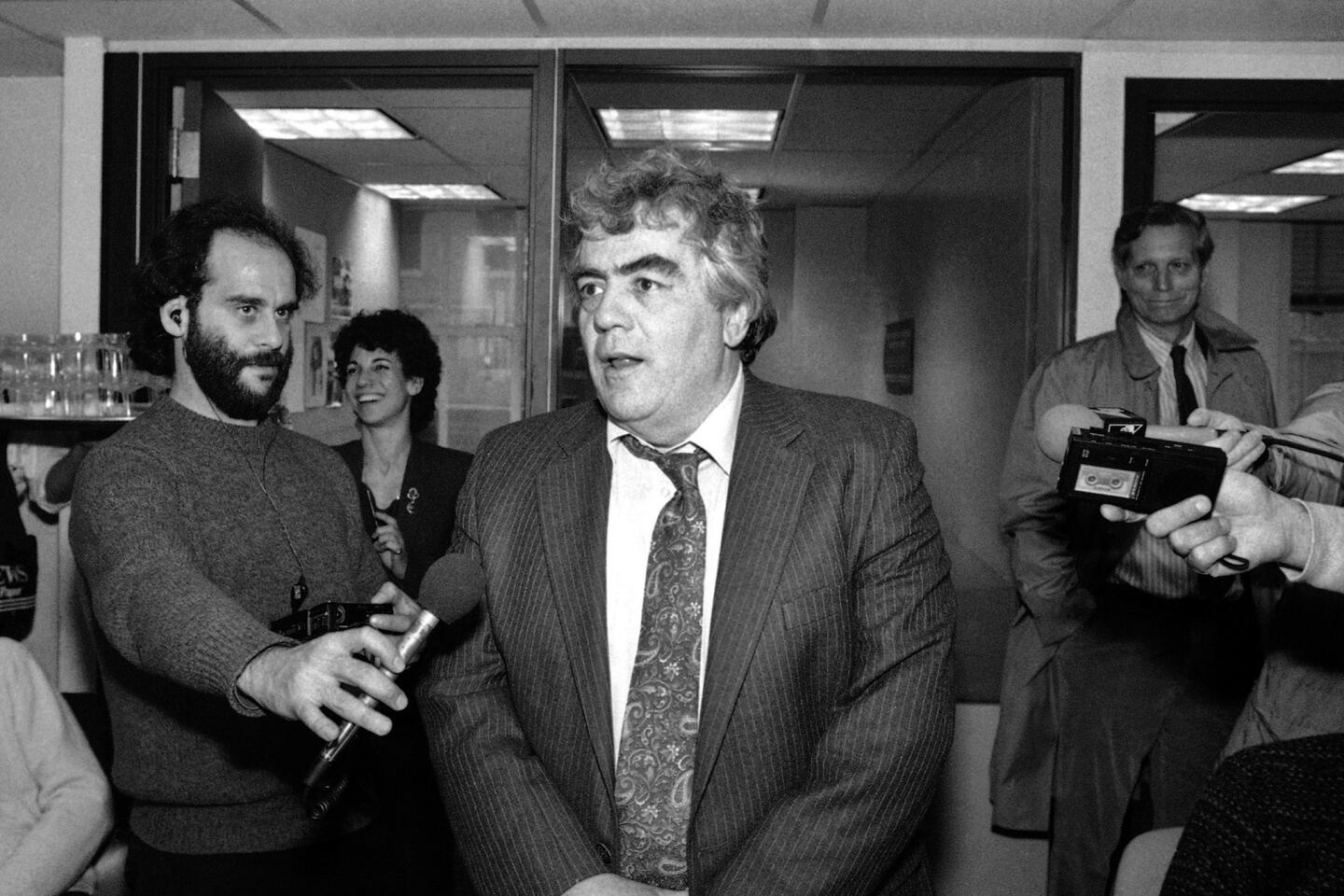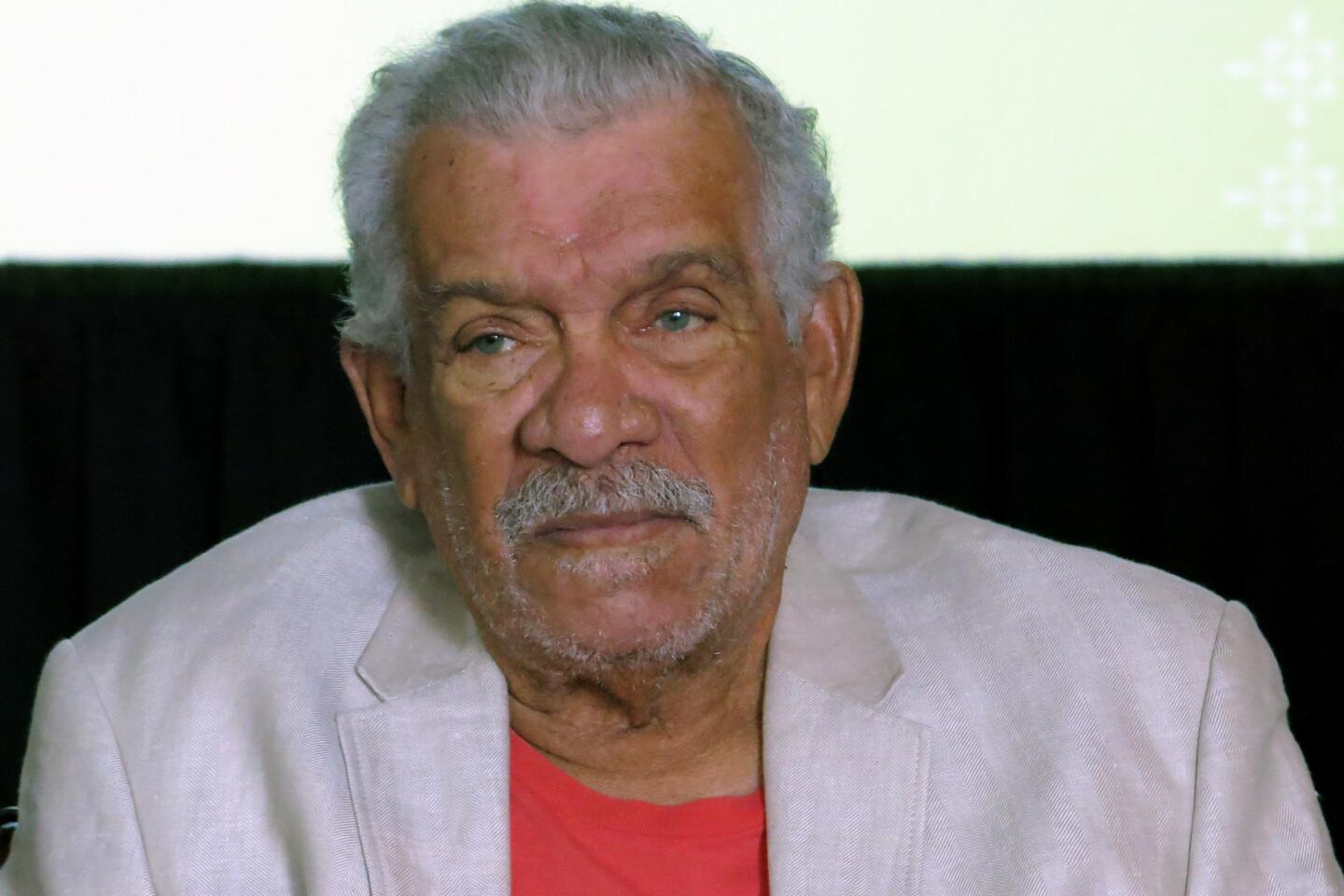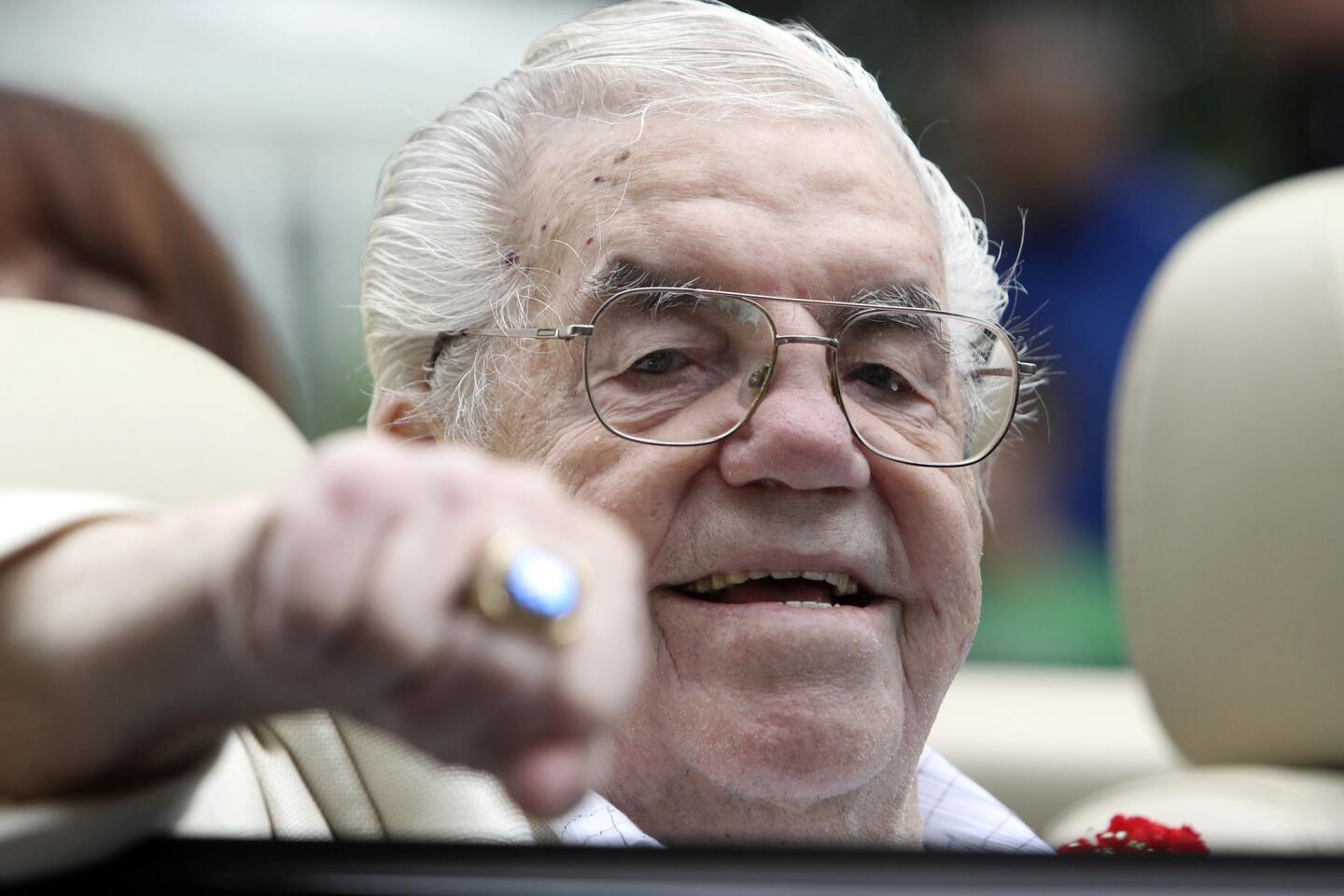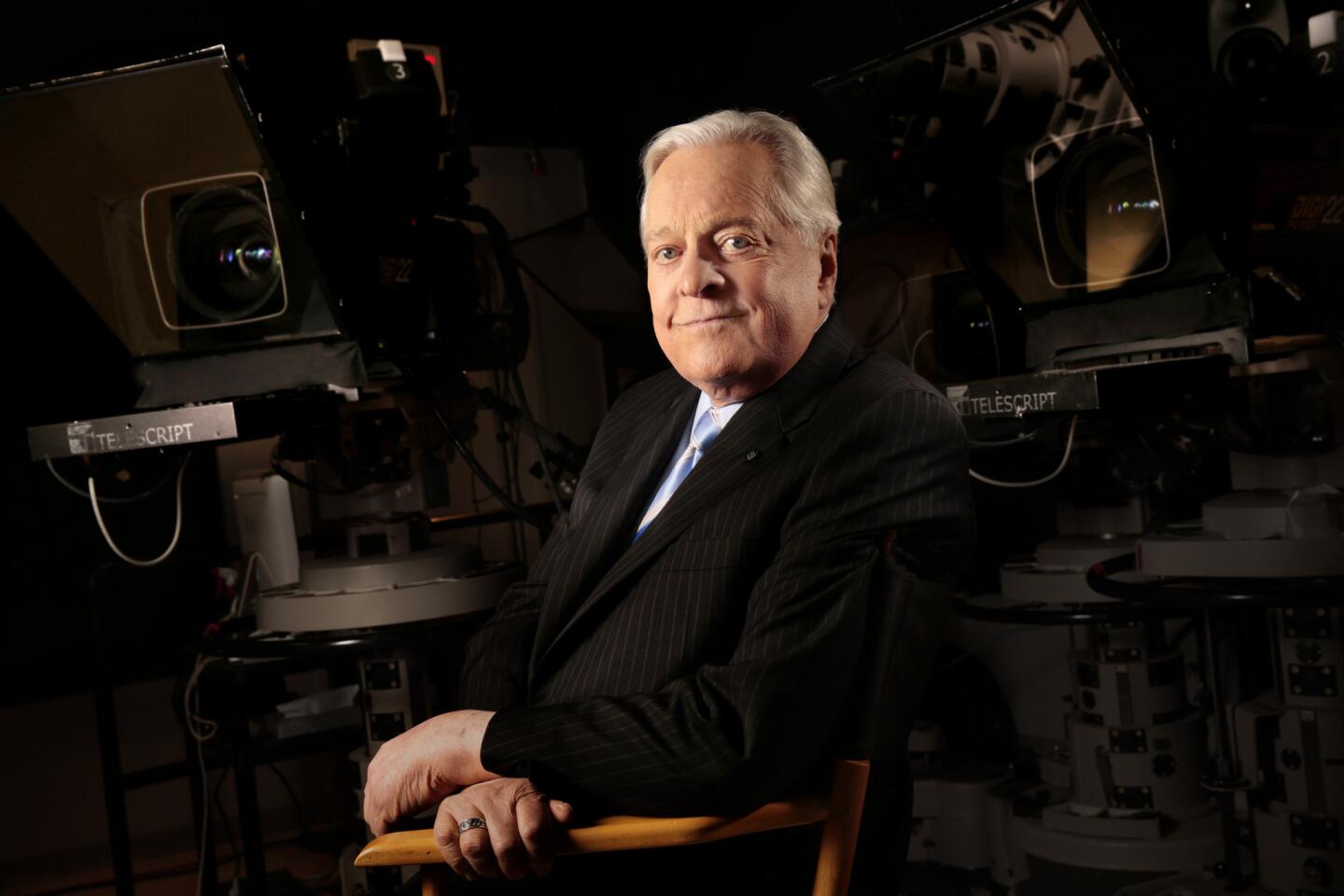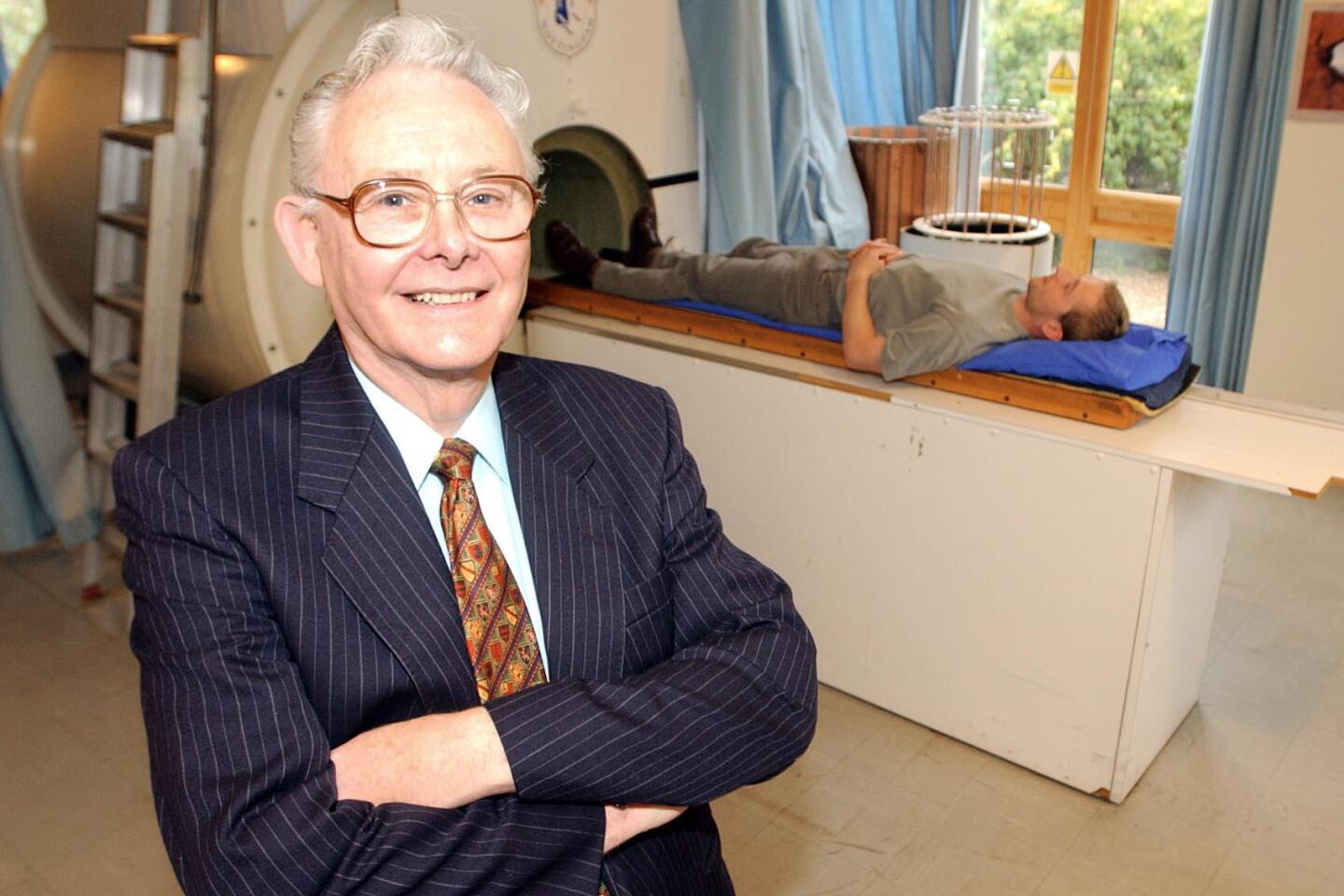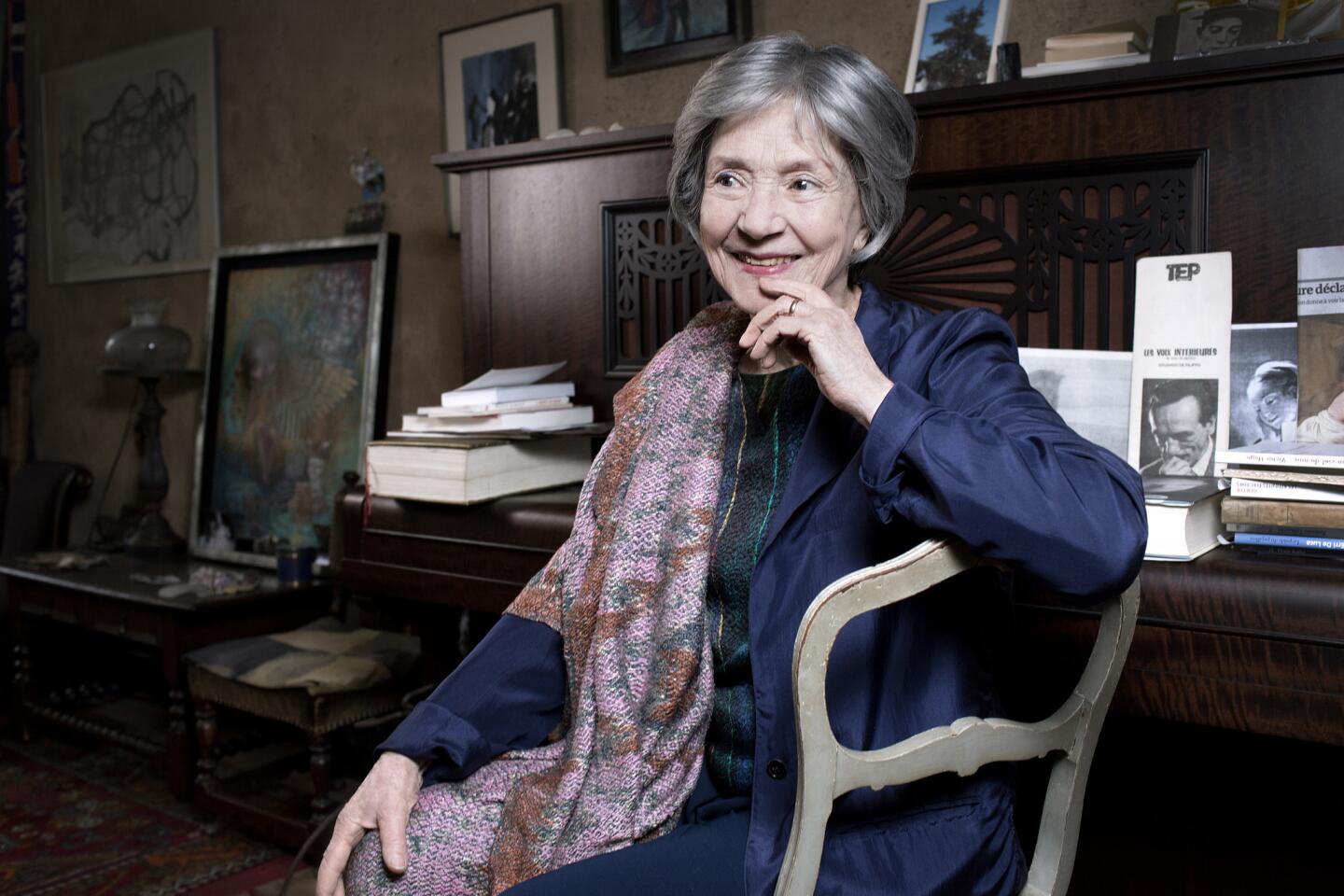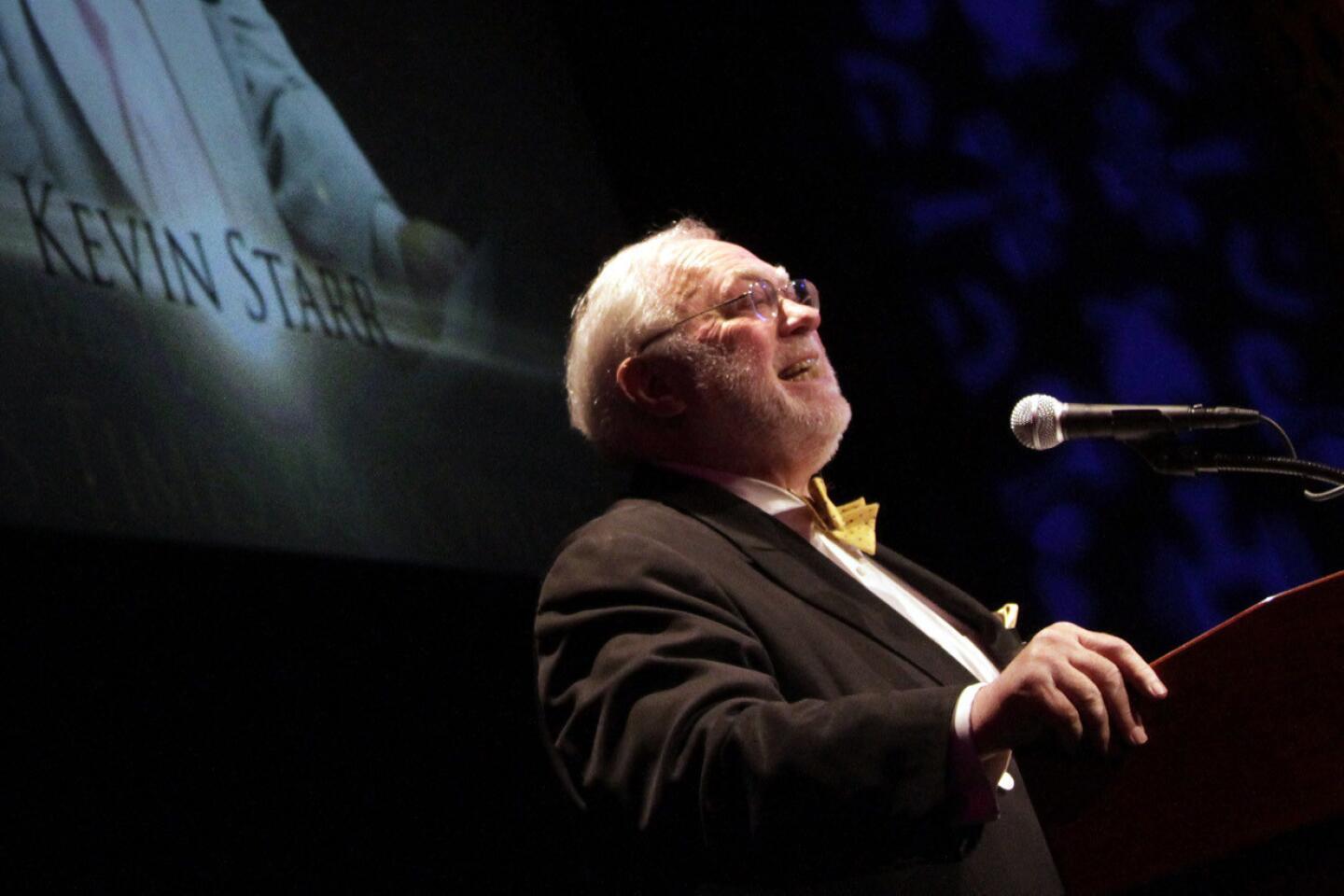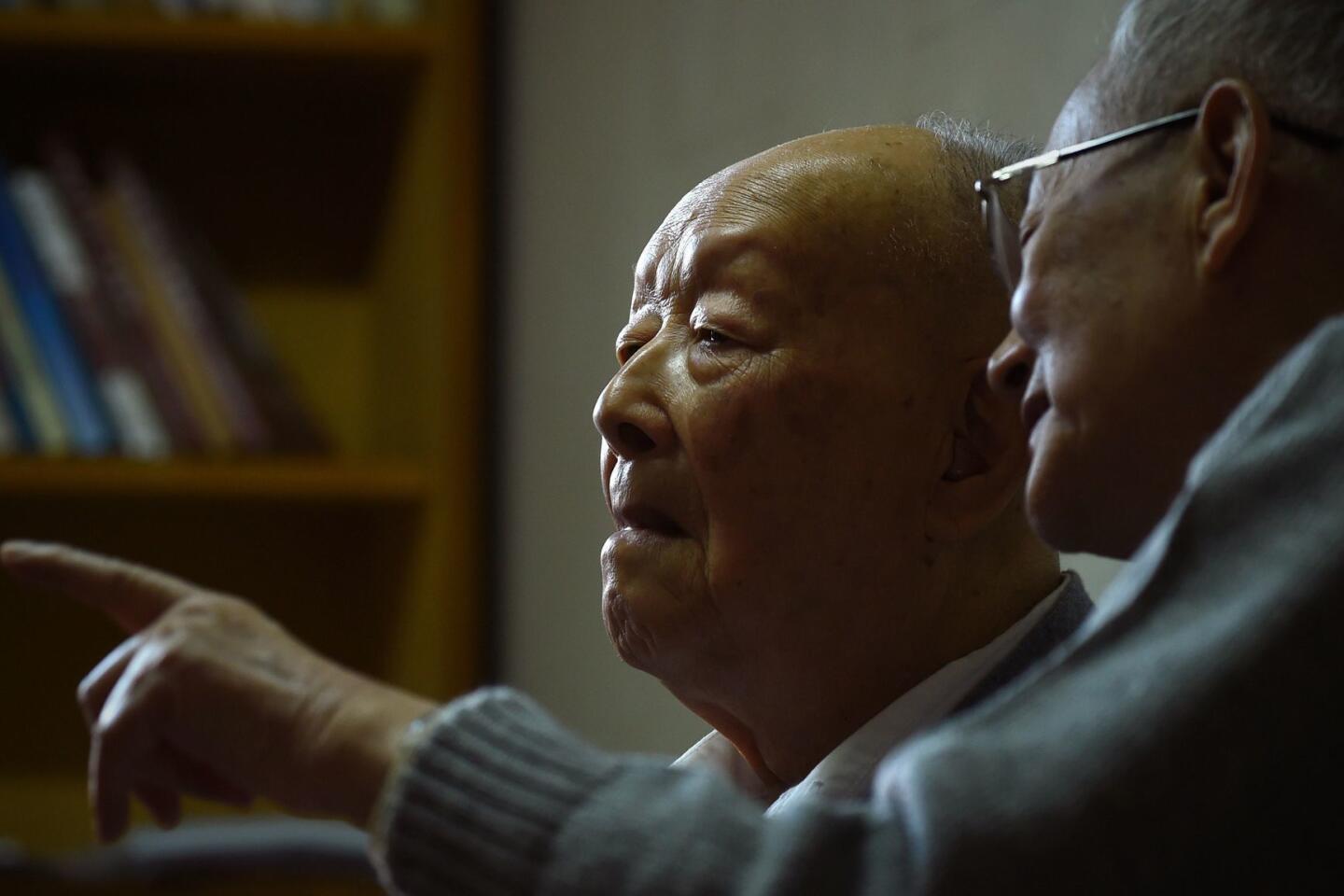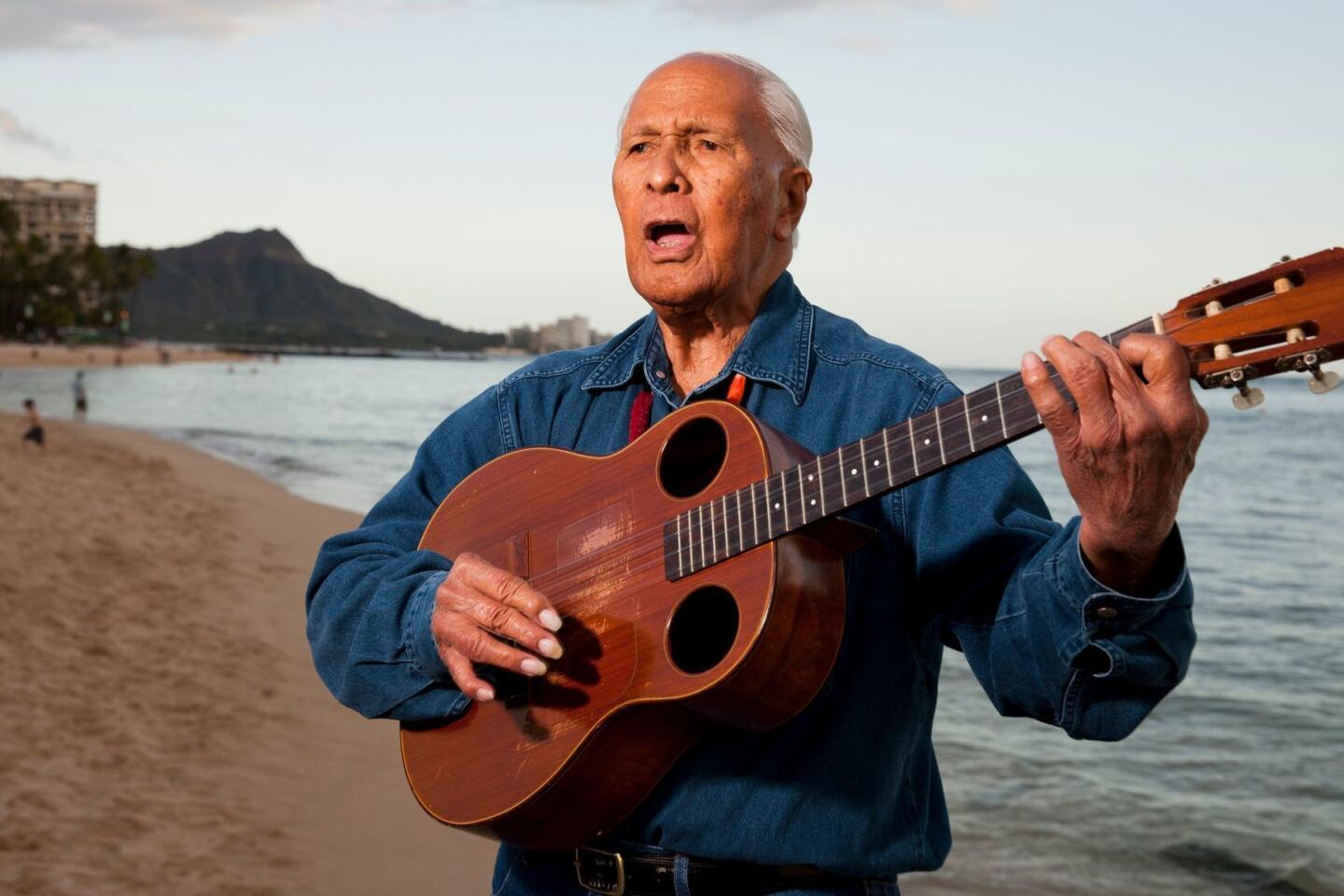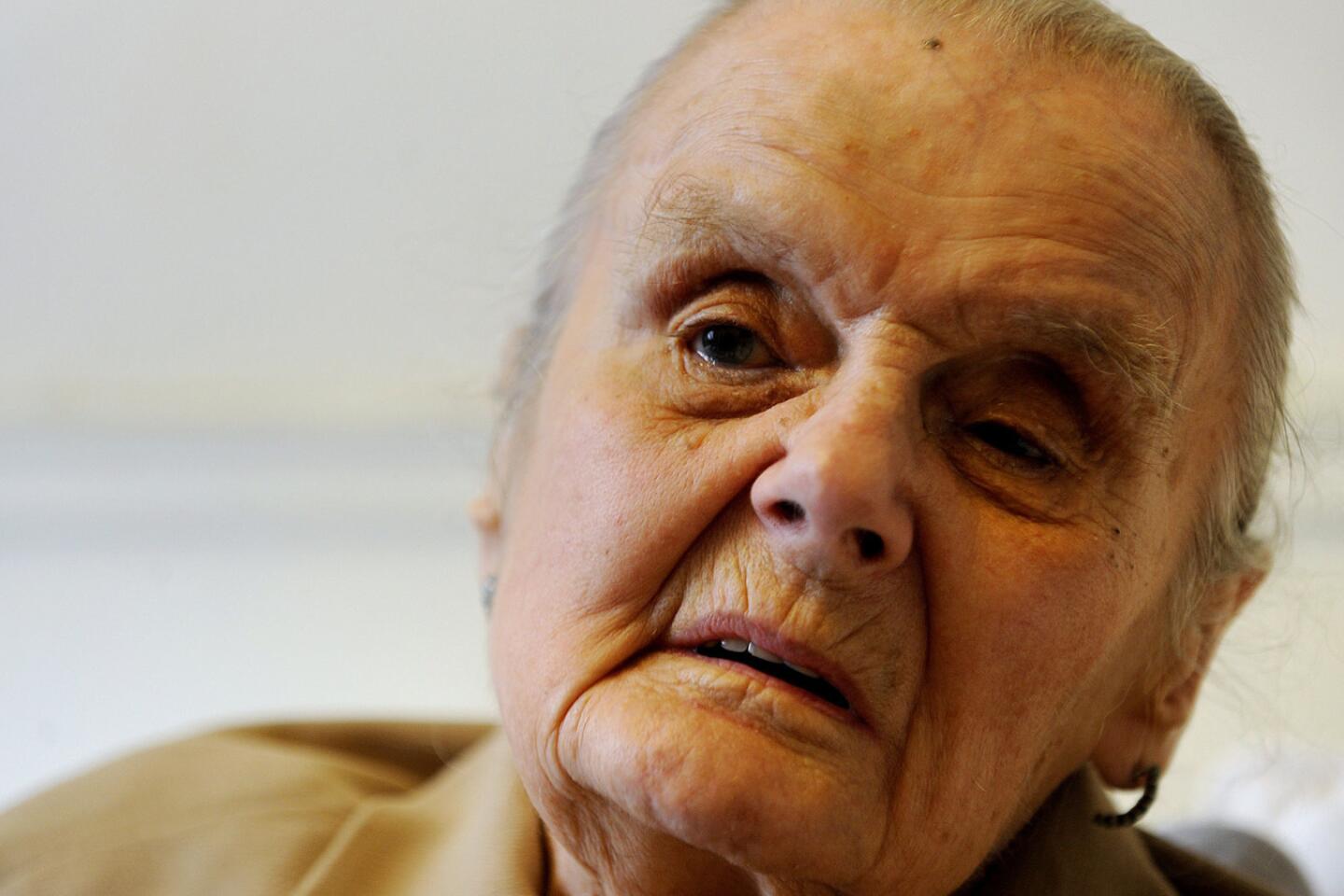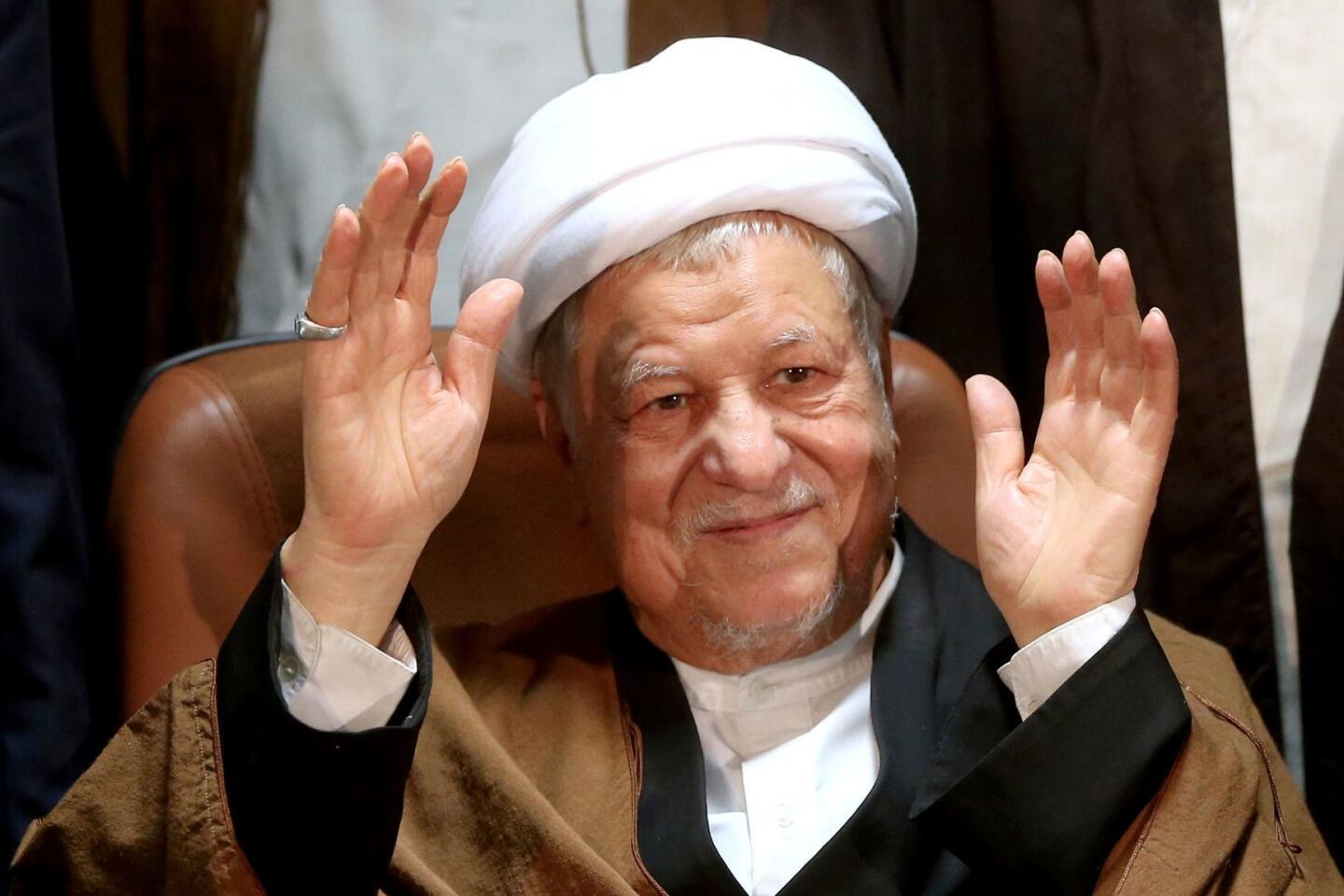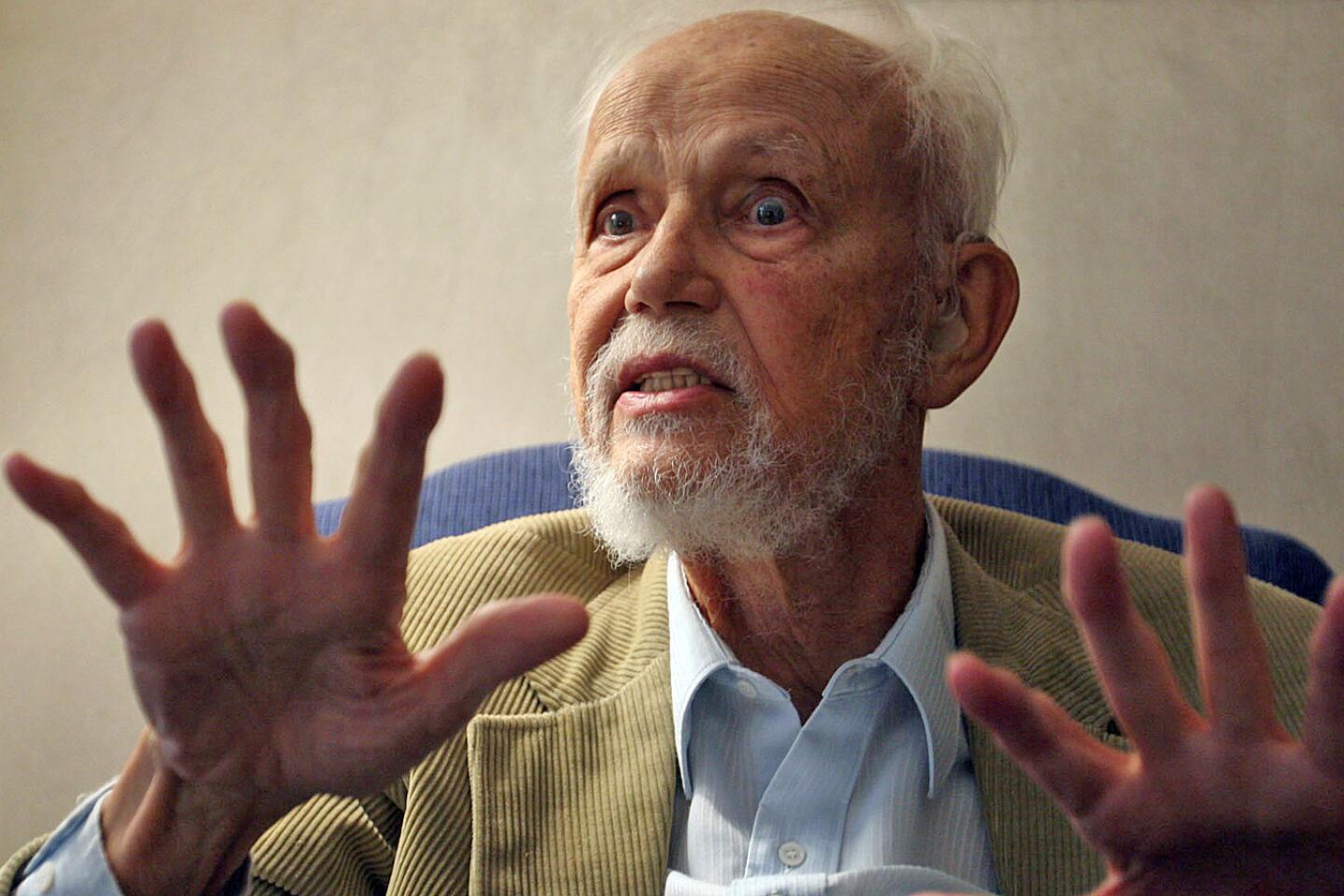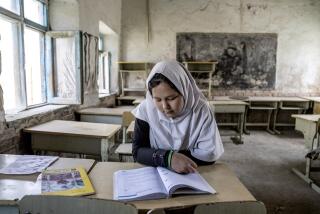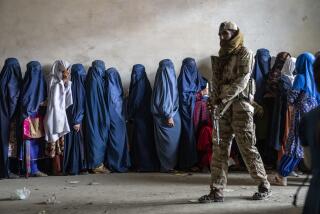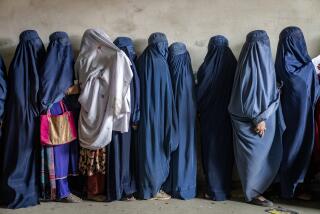Buildings in ruins, cars buried under fallen masonry — the scars of warfare seemed to touch every corner of the landscape as Sima Wali stared silently at her homeland.
An exile since 1978, it had been 24 years since Wali had fled Afghanistan. And as her car bounced along a broken highway in Kabul, she struggled to comprehend the level of destruction.
For the record:
10:00 a.m. Oct. 25, 2017An earlier version of this story said that the guerrilla fighters backed by the U.S. during the Afghan-Soviet war evolved into the Taliban. The Taliban came from Pakistan.
“Good god,” a companion murmured.
An Afghan human rights fighter and one of the loudest voices against what she called the “gender apartheid” leveled first by the communists and then by the Taliban, Wali spent decades in the United States pushing for reforms for women in Afghanistan and those — like herself — who lived life as a refugee.
And though the scene was sobering when she returned for the first time in 2002 with a pair of documentary filmmakers, Wali said she retained faith in the ability of her fellow Afghans to overcome even the most crushing forms of oppression.
“The Afghan spirit is indomitable, especially the women,” she told listeners during a seminar on Afghanistan during her 2002 trip, which was chronicled in the documentary “The Woman in Exile Returns: The Sima Wali Story.”
Soft-spoken yet hard-charging, Wali was diagnosed with a rare neurological disease called multiple system atrophy soon after her last visit to Afghanistan in 2005. She died Sept. 22 at her home in Falls Church, Va., her nephew Suleiman Wali said. She was 66.
Wali was one of three women who served as a delegate at the 2001 U.N.-organized summit in Bonn, Germany, at which a new Afghan government was being formed. Though skeptics viewed their inclusion as window dressing in a country that had devalued women for so long, Wali successfully pushed for the creation of a Ministry of Women’s Affairs in the new administration and then was asked to lead the ministry. She declined the offer in order to focus on her international activism.
Born April 7, 1951, in Kandahar, Afghanistan, Wali spent her childhood in India, where her father worked as a banker. She earned a degree in business administration from Kabul University and worked at the American Embassy and the Peace Corps but then fled at her parents’ urging to the United States after a 1978 communist coup. A year later, the Soviets invaded.
Wali became a U.S. citizen, earned a master’s degree at American University in Washington and reunited with her parents, who had been jailed after the Soviet occupation.
If the grinding, decadelong Soviet occupation had eroded what gains women had made in Afghanistan, their fate became all the more desperate under the Taliban.
Wali spoke out where she could, raised money and visited refugee camps along the Pakistan border, trying to teach those who’d fled Afghanistan how to organize and empower themselves.
She blamed outside forces for the years of war and repressive leadership that left women with fewer and fewer rights, and recalled the brighter times of her youth when she said women enjoyed greater freedoms and ethnic divisions were unheard of. More so than her fellow human rights activists, she blamed the United States for supporting the guerrilla fighters during the Soviet war and then abandoning the country when the Soviets finally withdrew. She also fought to prevent the U.S. from formally recognizing the Taliban government in the years before 9/11.
“I still hear their cries,” she wrote about Afghan women in the introduction to “Invisible History: Afghanistan’s Untold Story,” the 2009 book written by Paul Fitzgerald and Elizabeth Gould. “During this entire time I carried with me their pleading voices and ultimately their screams, while the world looked away.”
1/46
The Santa Barbara writer created one of the first modern hard-boiled female private eyes and topped bestseller lists for decades, inspiring loyal readers to name their daughters after the series’ heroine, Kinsey Millhone. She was 77. Full obituary
(Carolyn Cole / Los Angeles Times) 2/46
The veteran sports broadcaster was long recognized as one of the most versatile and perhaps most enthusiastic announcers of his era. He also was an author, a longtime fixture at Pasadena’s Rose Parade, the host of several sports-themed TV game shows and was still calling San Diego Padres baseball games in his later years. He was 82. Full obituary
(Lenny Ignelzi / Associated Press) 3/46
Lee, elected in 2011, was the first Chinese American mayor of San Francisco, home to the oldest Chinatown in the United States. He oversaw years of dramatic growth that transformed the city’s skyline while also sending real estate values to stratospheric levels. He was 65. Full obituary
(David Butow / For The Times) 4/46
The singer and actor became a TV icon in the 1960s playing the lovably naïve Gomer Pyle on “The Andy Griffith Show” and the spinoff series “Gomer Pyle, U.S.M.C.” He was 87. Full obituary
(CBS Photo Archive / Getty Images) 5/46
Called “the Elvis of Opera” and the “Siberian Express” by some, Hvorostovsky was known for his velvety baritone voice, dashing looks and shock of flowing white hair. He was 55. Full obituary
(Shiho Fukada / Associated Press) 6/46
The syndicated gossip columnist’s mixture of banter, barbs, and bon mots about the glitterati helped her climb the A-list as high as many of the celebrities she covered. She was 94. Full obituary
(Stephen Chernin / Associated Press) 7/46
The fashion iconoclast’s clingy styles helped define the 1980s. Naomi Campbell was a favored model, and Michelle Obama wore his designs as U.S. first lady. He was 77. Full obituary
(Barbara Davidson / Los Angeles Times) 8/46
Kaji was the founding president of the Japanese American National Museum, established in 1992 in Little Tokyo. Years earlier, he established his own accounting firm and was part of a group that founded Merit Savings & Loan, one of the first and one of the few Japanese American-owned banks. He was 91. Full obituary
(Edward Ornelas / Los Angeles Times) 9/46
As one of the founding fathers of rock ’n’ roll, Fats Domino blazed a singular path in the history of popular music. Pounding a piano and booming in a baritone both warm and conversational, he gave the nascent genre a shot of rhythm and blues, jazz and boogie woogie from his native New Orleans. He was 89. Full obituary
(AFP / Getty Images) 10/46
Best known for his portrayal of the sharp-tongued butler in the TV sitcoms “Soap” and “Benson,” Guillaume also played Nathan Detroit in the first all-black version of “Guys and Dolls” and became the first African American to sing the title role in “The Phantom of the Opera,” appearing with an otherwise all-white cast in Los Angeles. He was 89. Full obituary
(Ann Johansson / For The Times) 11/46
Hefner built a publishing and entertainment empire on the idea that Americans should shed their puritanical hang-ups and enjoy sex. As the founder of Playboy magazine, he pitched an alternative standard — swinging singlehood — which portrayed the desire for sex as being as normal as craving apple pie. He was 91. Full obituary
(George Brich / Associated Press) 12/46
The prolific character actor and occasional leading man brought a soulful, hangdog presence to such varied films as “Alien,” “Paris, Texas,” “Repo Man” and “Pretty in Pink,” becoming a favorite of film fans and directors alike. He was 91. Full obituary
(Richard Derk / Los Angeles Times) 13/46
The gay rights pioneer brought a Supreme Court case that struck down parts of a federal law that banned same-sex marriage and led to federal recognition for gay spouses. She was 88. Full obituary
(Richard Drew / Associated Press) 14/46
Stomping over miniature bridges and buildings in a rubber suit, Nakajima portrayed Godzilla, the fire-breathing, screeching monster that became Japan’s star cultural export and an enduring symbol of the pathos and destruction of the Atomic Age. Nakajima said he invented the character from scratch, and developed it by going to a zoo to study how elephants and bears moved. He was 88. Full obituary
(Junji Kurokawa / Associated Press) 15/46
Kanno spent what should have been his final high school years confined to a World War II-era internment camp. He went on to become one of America’s first Japanese American mayors as an early-day politician in Orange County. He was 91. Full obituary
(Mark Boster / Los Angeles Times) 16/46
Romero will be remembered best for co-writing and directing “Night of the Living Dead.” The “Living Dead” franchise went on to create a subgenre of horror movies whose influence across the decades has endured, seen in films like “The Purge” and TV shows such as “The Walking Dead.” He was 77. Full obituary
(Amy Sancetta / Associated Press) 17/46
The Oscar-winning actor appeared in classic films such as Alfred Hitchcock’s “North By Northwest” and starred in the “Mission: Impossible” television series in the 1960s. He won his Academy Award for his portrayal of washed-up Bela Lugosi in Tim Burton’s “Ed Wood.” He was 89. Full obituary
(CBS Photo Archive / CBS via Getty Images) 18/46
The French survivor of Nazi concentration camps and a European Parliament president was one of France’s most prominent female politicians. She was best known in France for leading the heated battle to legalize abortion in the 1970s. France’s abortion rights law is still known four decades later as the “Loi Veil.” She was 89. Full obituary
(AFP / Getty Images) 19/46
The British author created Paddington Bear, the marmalade-loving teddy in a duffel coat and floppy hat. His creation become an icon immortalized in print, on screens and as countless stuffed toys. Bond was 91. Full obituary
(Sang Tan / Associated Press) 20/46
Pressman, center, was an Emmy-winning journalist who worked at WNBC for more than 50 years after stints at New Jersey’s Newark Evening News and the New York World Telegram and Sun. He covered the 1956 sinking of the Italian ocean liner Andrea Doria, riots at the 1968 Democratic National Convention, the Woodstock festival in 1969 and the terror attacks on Sept. 11, 2001. He was 93. Full obituary
(Ron Frehm / Associated Press) 21/46
The Santa Cruz entrepreneur opened one of the world’s first surf shops and pioneered the neoprene wetsuit that helped popularize year-round cold-water surfing. He lost his eye in a surfing accident. He was 94. Full obituary
(Dan Coyro / Associated Press) 22/46
The former dictator of Panama often played opposing sides of Cold War-era political battles until he was ousted by his on-again, off-again sponsors and toppled in a U.S. invasion. He was 83. Full obituary
(AFP / Getty Images) 23/46
Deford was an award-winning sports journalist and commentator whose elegant reportage was a staple for years at Sports Illustrated and National Public Radio. He was the first sportswriter awarded the National Humanities Medal. In 2013, President Obama honored him for “transforming how we think about sports.” He was 78. Full obituary
(Carolyn Kaster / AP) 24/46
Perenchio deftly pulled the levers of power to create culturally defining media events, propel political candidates, collect masterpiece artworks and become one of the richest men in Los Angeles. In late 2014, he announced that he would leave much of his collection — at least 47 works valued at more than $500 million — to the Los Angeles County Museum of Art. He was 86. Full obituary
(Genaro Molina / Los Angeles Times) 25/46
The polarizing Fox News founder was credited with turning the news channel into a ratings powerhouse over his 20 years at the helm. He was ousted from the network following sexual harassment charges. He was 77. Full obituary
(Jennifer S. Altman / For The Times) 26/46
The former child star played Joanie Cunningham in the sitcoms “Happy Days” and “Joanie Loves Chachi.” Her more recent credits included “The Love Boat” and “Murder, She Wrote.” She was 56. Full obituary
(Wally Fong / Associated Press) 27/46
Using insult as his weapon of choice and a quick, knowing smirk as his defense, Rickles delighted audiences with his brand of aggressively caustic humor that targeted everyone from unknown “hockey pucks” to big-name celebrities. He was 90. Full obituary
(Jay L. Clendenin / Los Angeles Times) 28/46
A close confidante of Nelson Mandela, Kathrada dedicated his life to opposing apartheid and racism. An African National Congress activist, he played a major role in South Africa’s liberation struggle. He was 87. Full obituary
(Kopano Tlape / EPA) 29/46
The billionaire businessman and philanthropist was the last in his generation of one of the country’s most famously philanthropic families. He was 101. Full obituary
(D. Pickoff / Associated Press) 30/46
The Pulitzer Prize-winning newspaper columnist was part of the wave of practitioners of what came to be known as New Journalism: a group of gifted writers that included Tom Wolfe, Gay Talese, Hunter S. Thompson, Joan Didion and others who reported on the social and cultural upheavals of the 1960s and ’70s. His writing made him a New York City institution for more than 40 years. He was 88. Full obituary
(Mario Cabrera / Associated Press) 31/46
One of the founding fathers of rock ’n’ roll, Berry was an innovator who designed much of the music’s sonic blueprint and became his era’s most creative lyricist. He was 90. Full obituary
(Michael Ochs Archives / Getty Images) 32/46
The Nobel-prize winning poet was known for capturing the essence of his native Caribbean. His work was widely praised for its depth and bold use of metaphor, and its mix of sensuousness and technical prowess. He was 87. Full obituary
(Berenice Bautista / Associated Press) 33/46
The Boxing Hall of Fame trainer and manager handled the careers of 19 champions including heavyweight Evander Holyfield. Duva with his family built the promotional company Main Events into one of boxing’s powerhouses. He was 94. Full obituary
(Mike Groll / Associated Press) 34/46
The silver-haired and dapper Osborne was a bona fide movie connoisseur who displayed his wide knowledge of films as the genial host on Turner Classic Movies since its launch in 1994. Osborne was a longtime columnist for the Hollywood Reporter and the “official biographer” of the Academy Awards. He was 84. Full obituary
(Carolyn Cole / Los Angeles Times) 35/46
Dubbed the “Acrobat of Scat” for his vocal delivery, Jarreau was admired by fans for his imaginative and improvisational qualities. He is best known for his single “We’re in This Love Together” from 1981. He is the only Grammy vocalist to win in the jazz, pop and R&B categories. He was 76. Full obituary
(Felipe Dana / Associated Press) 36/46
Mansfield won the Nobel Prize for helping to invent MRI scanners. In 1978, he was the first person to step inside a whole-body MRI scanner so it could be tested on a human subject. His work, alongside chemist Paul Lauterbur, revolutionized the detection of disease by revealing internal organs without the need for surgery. He was 83. Full obituary
(David Jones / Associated Press) 37/46
Riva’s portrayal of an elderly woman in the 2012 end-of-life drama “Amour” earned her international acclaim and the distinction of being the oldest nominee for a lead actress Oscar. She was 89. Full obituary
(Francois Mori / Associated Press) 38/46
Moore rose to stardom on “The Dick Van Dyke Show” in the 1960s and went on to headline “The Mary Tyler Moore Show,” a highly successful sitcom in the 1970s (pictured). The actress and her television character became so entwined that Moore became a role model for women who sought to challenge the conventions of marriage and family. She was 80. Full obituary
(CBS Photo Archive / Getty Images) 39/46
Cernan, commander of NASA’s Apollo 17 mission, set foot on the moon in December 1972 during his third space flight. He was the last of only a dozen men to walk on the moon. He returned to Earth with a message of “peace and hope for all mankind.” He died at 82. Full obituary
(SSPL / Getty Images) 40/46
The former California state librarian wrote rich cultural, economic and political histories on the birth, growth and maturation of the Golden State. He captured the state’s rise in influence and its singular hold on the public imagination in his sweeping “Americans and the California Dream” series. Full obituary
(Lawrence K. Ho / Los Angeles Times) 41/46
Youguang was a linguist considered to be the father of modern China’s Pinyin Romanization writing system. Adopted by the People’s Republic in 1958, Pinyin has virtually become the global standard because of its simplicity and consistency. He was 111. Full obituary
(Wang Zhao / AFP/Getty Images) 42/46
Dutton was the owner of Dutton’s Books, a Los Angeles landmark with its overflowing shelves and hard-to-find titles. Dutton’s Books on Laurel Canyon Boulevard, along with sister locations in Burbank and downtown Los Angeles, was at the very center of literary L.A. when it opened in 1961. He was 79. Full obituary
(Gina Ferazzi / Los Angeles Times) 43/46
Kamae was one of the most influential Hawaiian musicians of the last half-century and a filmmaker who painstakingly documented the culture and history of the islands. He had long been the face of the Sons of Hawaii, a popular recording group and a pioneering force in traditional island music. He was 89. Full obituary
(Marco Garcia / For The Times) 44/46
The British war correspondent was the first journalist to report the Nazi invasion of Poland that marked the beginning of World War II. She won major British journalism awards, and was made an Officer of the Order of the British Empire by Queen Elizabeth II. She was 105. Full obituary
(Mike Clarke / AFP/ Getty Images) 45/46
The former Iranian president was an aide to Iran’s revolutionary supreme leader, the late Ayatollah Ruhollah Khomeini. Although Rafsanjani’s legacy was tarnished by allegations of corruption and authoritarianism, his backing helped moderate President Hassan Rouhani win election in 2013, setting the Islamic Republic on a path to ending its disputed nuclear program and easing its isolation from the West. He was 82. Full obituary
(Ebrahim Noroozi / Associated Press) 46/46
A scholar of world religions, Smith is best known for his work “The Religions of Man,” first published in 1958. It was reissued as “The World’s Religions” in 1991 and has sold about 2 million copies. His informed yet accessible prose led many laymen to read his books as their introduction to religions of the East and West. He was 97. Full obituary
(Tina Fineberg / Associated Press) In 1981, Wali established Refugee Women in Development, a group that assisted refugees in the U.S., and helped launch feminist think tank Sisterhood Is Global Institute. She spoke before Congress and the United Nations and addressed groups such as the Los Angeles-based Feminist Majority Foundation. She was awarded the Amnesty International Ginetta Sagan Award in 1999 and the Gloria Steinem Women of Vision Award in 1989.
In her last trip to Afghanistan in 2005, Wali was nearly taken hostage by Taliban and Al Qaeda fundamentalists while visiting Jalalabad, a town along the Pakistan border. In a first-person account published in the Huffington Post, she described hearing gunfire and explosions outside the governor’s compound where she was staying and then hiding in a darkened garden as the mob broke through the palace gates.
To escape, Wali and others scaled walls and dashed across a field to a gardener’s house, where a woman took them in and offered them food. She said she wore a bedsheet in a “desperate attempt to render myself invisible.” A burka, she said, would have come in handy.
When an airlift was hurriedly arranged to ferry out the governor and other government officials, Wali joined a convoy and made it to the waiting plane.
“Many Afghans came to our aid unconditionally even though it put them at great risk,” she wrote. “But as the world has come to see in vivid terms, Afghan bravery cannot alone stop the tide of barbaric extremism.”
Afflicted with a crippling disease that robbed her of the ability to walk and, finally, to talk, she used an alphabet board to communicate, before even that limited ability disappeared. Her nephew said it was a cruel irony that a woman who had spent her life “giving a voice to the voiceless” would then lose her own.
He recalled one of the messages she formed: “T-h-i-s-i-s-m-y-w-a-r.”
Wali’s lone marriage ended in divorce in 1987. She had no children. She is survived by two sisters, Sohaila and Soraya Wali; and four brothers, Ahmad, Jahed, Zia and Abdul Wali.
steve.marble@latimes.com
twitter.com/stephenmarble
UPDATES:
Oct. 25, 10:13 a.m.: This article was updated with additional details
This article was originally published Oct. 24 at 4:45 p.m .
